Creating a Bond
‘You don’t have to give birth to a child to have a bond’
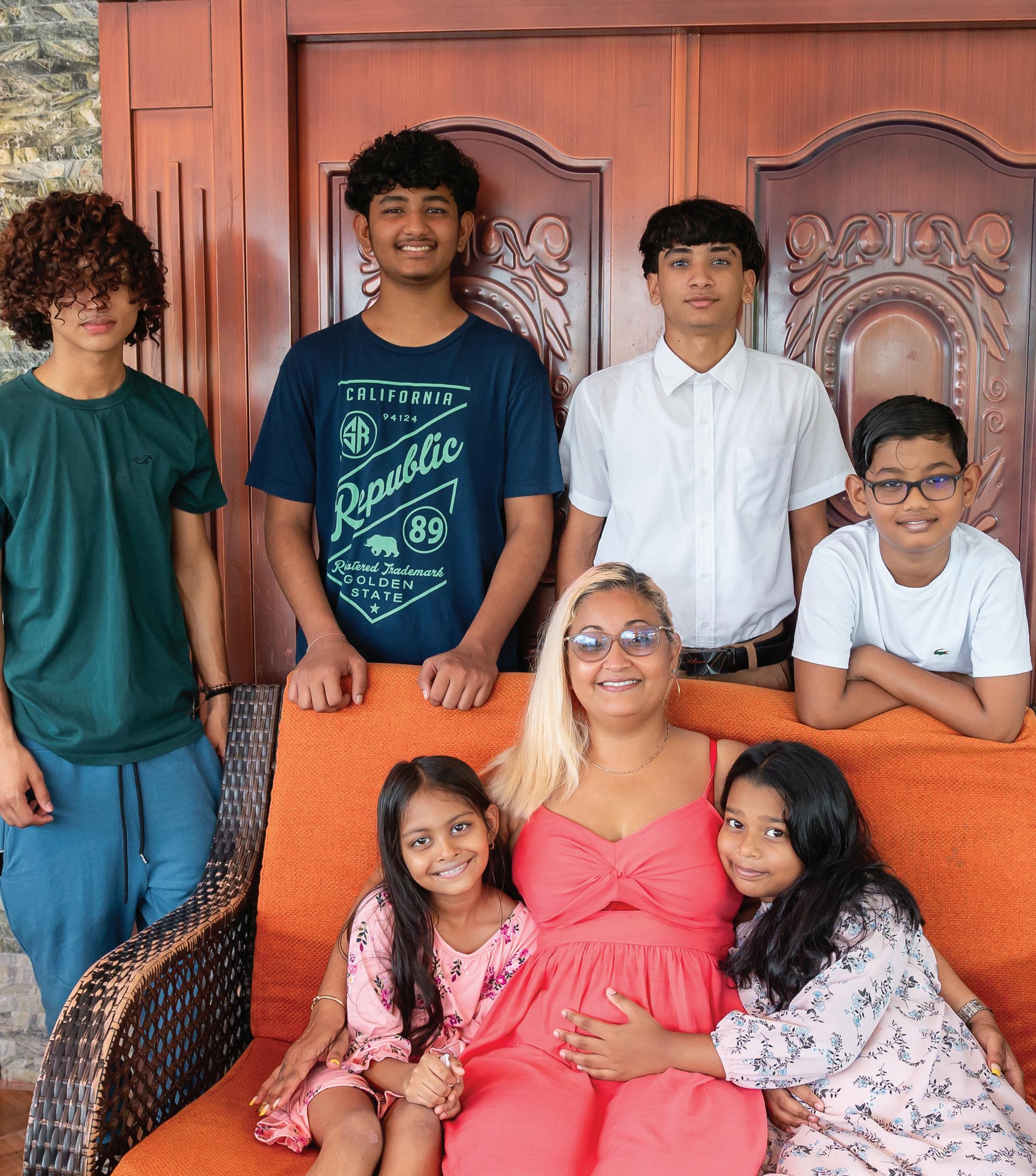

Sunday, May 12, 2024

‘You don’t have to give birth to a child to have a bond’


Sunday, May 12, 2024
AS we celebrate Mother’s Day, we honour extraordinary mothers like Dr. Cindy Sinclair. Growing up in a bustling family of eleven siblings in Berbice, Guyana, Cindy embarked on a journey to Canada that would lead her to remarkable achievements. She arrived in Canada in 1972 as an international student with no idea of where she would live or how she would survive. She has lived in Canada with her husband for 40 years. They share three wonderful sons and four adorable grandchildren.
The year 2023 marked a significant milestone for Cindy as it commemorated 50 years since she first joined the prestigious University of Toronto (U of T). Starting as a clerk typist at the Rotman School of Business, Cindy’s journey evolved into a distinguished academic career within the Temerty Faculty of Medicine. She is the founder and president of Sinclair Consulting Services. Alongside her professional accomplishments, Cindy’s three sons have followed in her footsteps, each carving out successful paths as Professor of Finance, Primary School Teacher and Data Scientist.
Admitting that she’s not fond of giving interviews, the proud mother, distinguished educator, leader and mentor kindly consented to speak with the Pepperpot Magazine and share her life’s journey in Canada after leaving her little village in Guyana.
According to Cindy, “From a young age, I saw my dad helping the less fortunate families in the neighbourhood. That sense of compassion and care for others has guided my life and carried me through my own life and career path in Canada, where I consistently strive to go above and beyond to help students and the wider community.
“During the COVID pandemic, I volunteered with a community centre to provide support to senior citizens. Four years later, I continue to receive weekly phone calls from at least
 Dr Cindy Sinclair
Dr Cindy Sinclair
one lovely 86-year-old woman of Jamaican descent. During my work in postgraduate medicine at the [University of Toronto], I saw the challenges immigrant medical doctors faced in trying to secure a licence to continue their medical career and failed. As an immigrant myself who had to find a path for

myself and my family, I felt compelled to help newcomers. It gives me immense joy and satisfaction in seeing newcomers realise their dreams.”

“One international student sent me a note in 2012, which is still posted in my office, saying that I was like her surrogate mom, and thanked me for all I do for the students while being a student myself and having my own family to care for. She said I was truly generous, caring and lots of fun!”
Cindy pointed out that since earning her PhD, she has been a strong advocate for integrating immigrant professionals into the Canadian healthcare workforce. She played a pivotal role in designing an alternative career programme tailored specifically to help newcomer internationally educated healthcare professionals transition into the Canadian workplace through workshops and coaching. “I go one step further to provide a space to meet, build networks, learn from each other and prepare and apply for jobs.”
Cindy has had the pleasure of seeing numerous newcomers transition into jobs in the clinical, postdoctoral, managerial, professorial, researcher, administrative, educator and community healthcare leads, as well as aspiring for higher education in numerous areas of education. These efforts have brought much happiness and fulfillment to the lives of countless newcomers.
Cindy established a Sinclair Family Financial Bursary to enable students with financial needs to complete their academic degree. According to her, the first student to receive this bursary, with no input from herself or her family, was a second-year Rotman Commerce student, where Cindy started her first job at the University of Toronto 50 years ago, and, where

‘You don’t have to give birth to a child to have a bond’By Shaniya Harding
AS we celebrate yet another Mother’s Day with flowers, photos and gifts of love, mothers everywhere reflect on what motherhood means to them. From working mothers who have mastered motherhood’s balancing acts to new moms finding their footing, the maternal journey is truly special. Although challenging, it is also among the most rewarding. Most mothers say that there is no better feeling than seeing the children they raise become successful, beautiful people to be proud of. This Mother’s Day, the Pepperpot Magazine pays homage to all mothers everywhere. And whereas everyone’s story is unique, this week, we look at a story that blends a few aspects of motherhood.
Motherhood in many forms
After Marisa Seenarine had her first taste of motherhood at 18, filled with love and an undying passion for children, she had three other children of her own. But there still remained within her, a need to do more. Almost a decade ago, Marisa adopted her first child, a baby. Since then, she has fostered many children and made the brave decision to adopt three other children. She admits that there are challenges, especially emotional trials. However, throughout her experiences, it may be hard to understand or even care for a child from the system. But to Marisa and her family, creating a bond was never the issue.
To most people, looking at Marisa and her team of eight children, they may be more reminiscent of a class of children than a family. But that is exactly what they are. Today, Marisa has four biological children and four adopted. Marisa has dedicated most of her life to caring for children. Her motherhood story began with the birth of her first son at 18. As she explained, “My pregnancy was a secret. Not even my parents knew. I was so terrified because of my mother. I thought my mother would have killed me. So nobody knew I was having a baby until I went into labour.”
Love at first sight.
After giving birth to four boys, Marisa felt as though there was more she could and should do. Already having moved through the motions of motherhood, challenges with discipline and postpartum depression included, having another child seemed like a ludicrous idea. But to Marisa, the little girl she found out was left at New Amsterdam Hospital was in need, and she was ready to help.
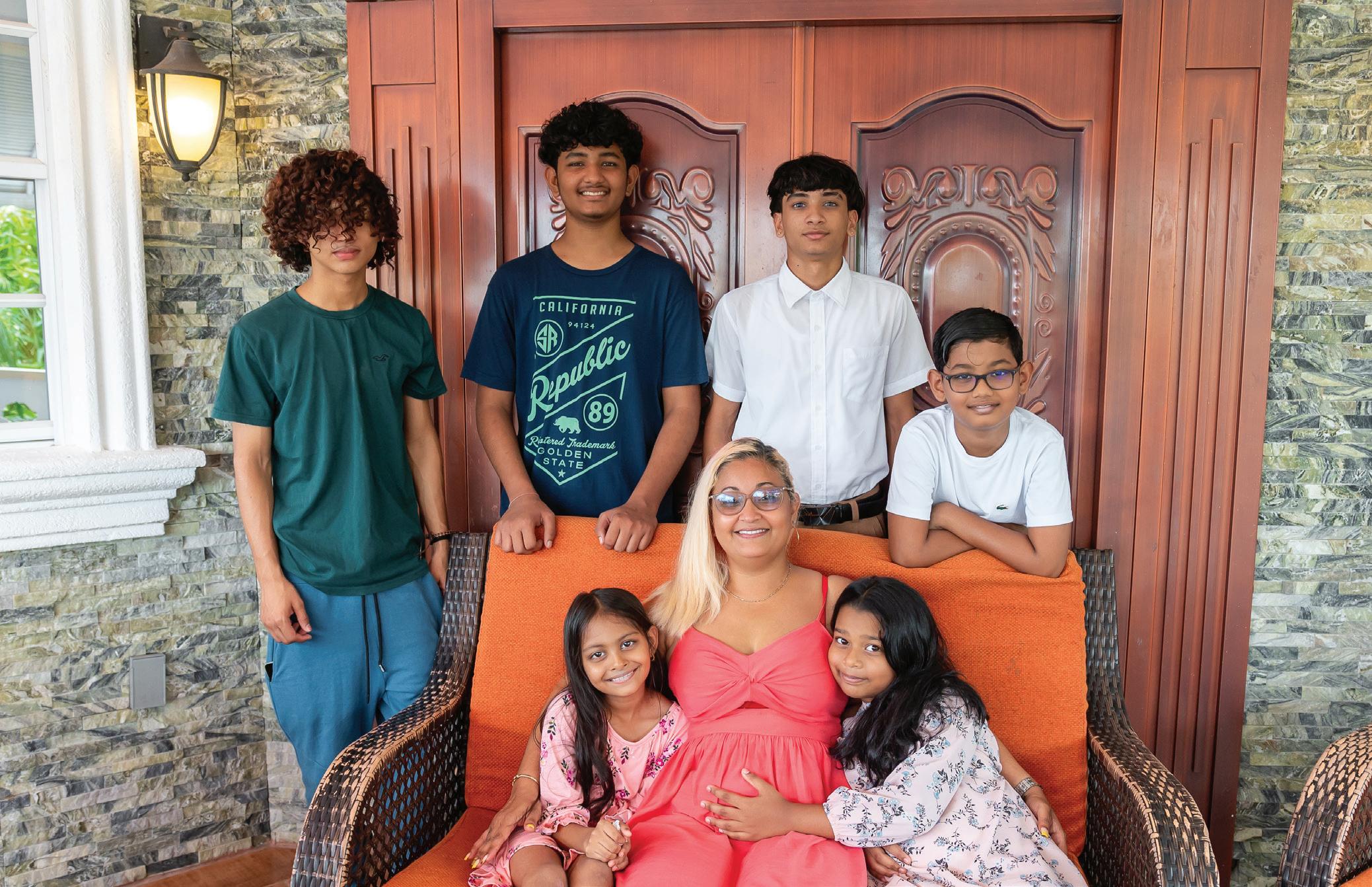

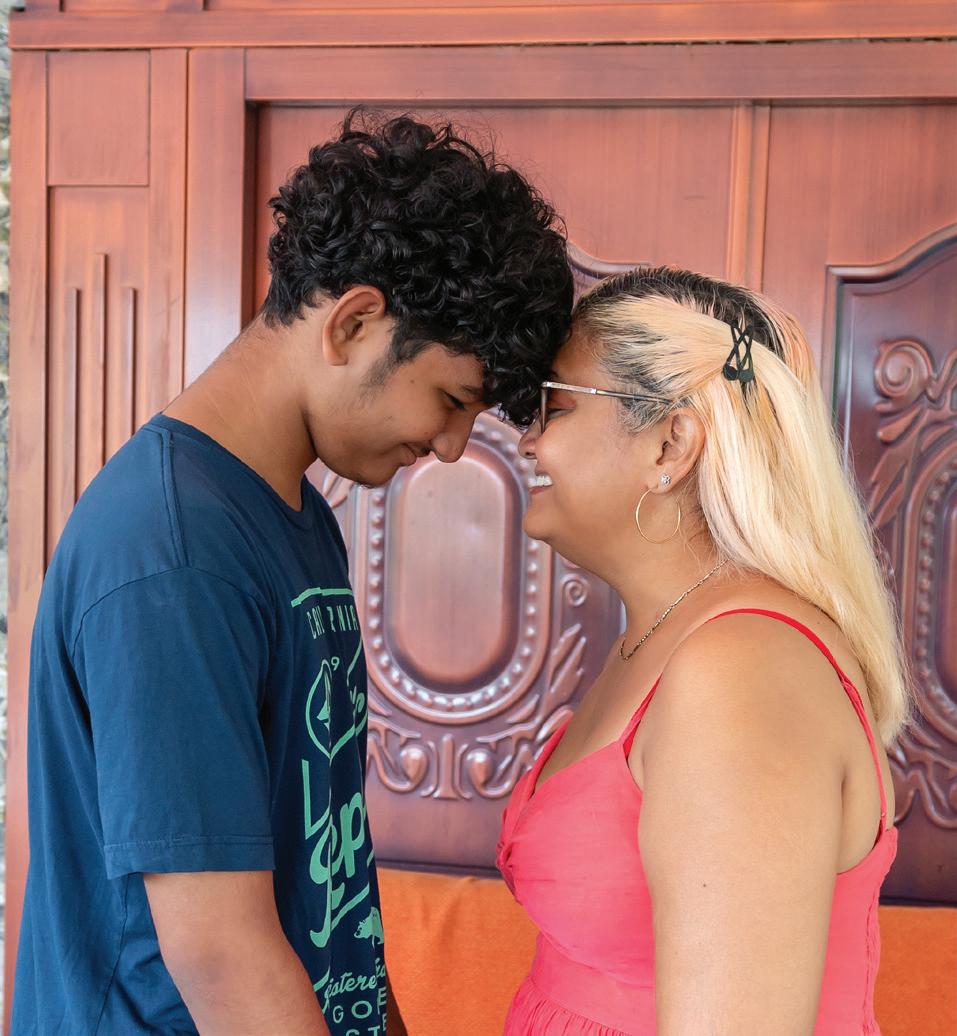
She met with the mother of Alyssa, the first child she adopted when she was just a few days old. “I heard of this child that was left at New Amsterdam Hospital. When I got to find out who the mother was, I actually was familiar with the mother. It was a small world. So I went, and I looked for her. And I spoke to her, and I asked her. I said, if you don’t want her, then why don’t you give her to me? And everything just happened. I was driving with my sister, and I’m like, am I crazy? Who’s going to give me their child?”
But they did, and just a few months later,
Marisa became the mother of a healthy baby girl. Today, Alyssa is eight years old, and they have a relationship as strong as any. Over time, Marisa has become the mother to three other children, including, eight-year-old Dayna, a young man named Ravin, and the family’s most recent addition, a 13-year-old girl named Yogeeta. Marisa’s older sons have also taken well to the new additions to the family. Hayden, Marisa’s oldest son, who still lives with her, has taken great pleasure in the family’s new additions and crafted a unique relationship. Marisa shared that it is a long process to integrate into a family like hers. But she eventually found all the bits and pieces and made it work for her family.
Don’t Judge a book by its cover
Marisa has started a small online group for people who would like to adopt in Guyana, and she has even worked with numerous families throughout their journey. To Marisa, caring for a child in a difficult position is one of the most unique feelings. She shared that her love for all her children has developed with time, not with shared genetics, but with pure admiration. She urges Guyanese everywhere to consider adoption. She assures parents that a child is still a child regardless of their age. And this is not something that should stop people from adopting. Marisa continues to work with multiple orphanages across Guyana, spreading the positivity
of adoption and foster care.
As she stated, “I know many people call, and the first thing I would ask is, what is the age range you look at? If there are 100 persons on that waiting list, 99 of them are waiting for newborns. You don’t need a newborn to have a bond. For me, I would say that don’t judge by age. We look

at people, and we judge them by the way they look. Their attitude and their behaviour. I don’t want them to judge a child by that or even by age.” A mother’s love is truly unique. It breaks the barriers of all challenges, and at the end of the day, a mother’s love is the only sure thing most of us have. So give your mom her flowers, and reignite that special bond this Mother’s Day.
IN 1986, Lakenauth Puran got his first tractor-trailer. It cost about $9,000 for the tractor and $8,000 for the trailer back then, and he can still remember how he had to borrow from family and friends to ensure he had enough to make the investment. As he worked diligently in garbage collection with it, he had no idea that the one tractor-trailer would eventually result in a flourishing business that would see exponential growth for decades to come.
It had to be something he was confident about because, at the time, heavy stigma was attached to working in the garbage collection industry. It was viewed with disdain, and perhaps this is the reason it was not a com-

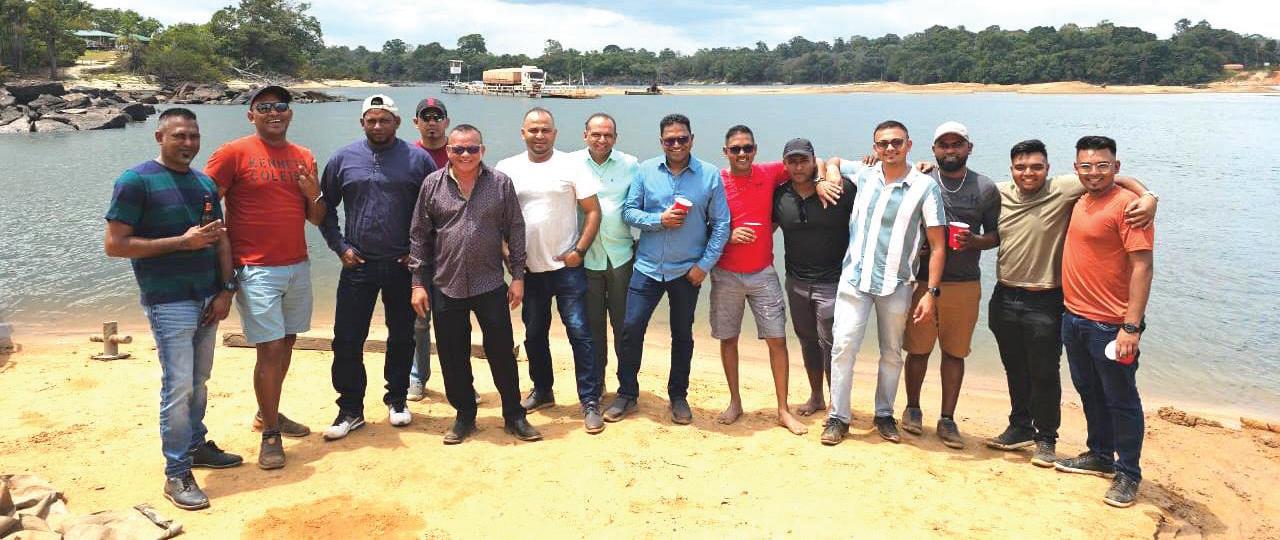
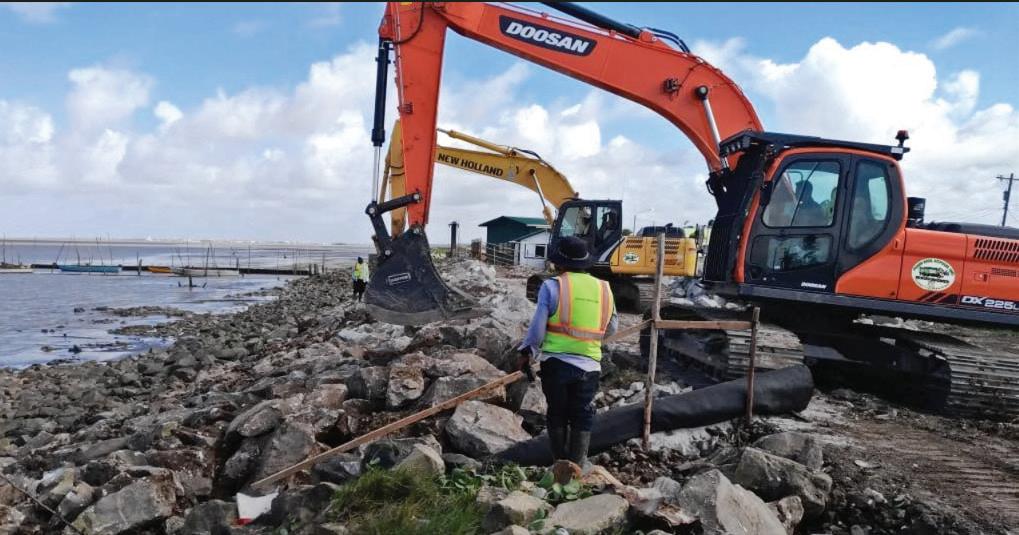
petitive business back then: practically no one wanted to venture into it.
But not Lakenauth Puran. He had faith in the business. As things turned out, many of his family members would later join him in growing what is now Puran Brothers Disposal Inc., a mammoth garbage collection and disposal company that has become a common household name in Guyana.
Originally from Leguan
Island, he moved to Pouderoyen, West Bank Demerara, as a child and went to West Demerara Secondary, where he gained a few subjects. Having decided to invest in the tractor-trailer, he worked with the Mayor and City
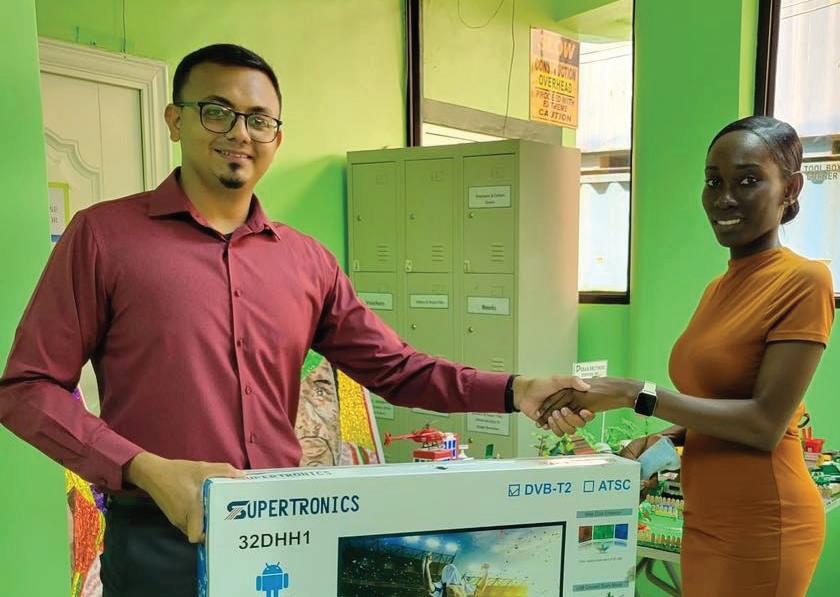
Council for several years before deciding to bring in his own compactor trucks.

“Then gradually the business grew till right now I don’t even know how many trucks we have,” Puran told Pepperpot Magazine recently.
Puran and his brother Taishnauth Puran are the two main directors of the company now, and other family members join them in making up the board of directors. “Puran Brothers is a big family business, so with the support of my brothers, sons, nephews, we all do it.”
Lakenauth Puran was not sure what career path he wanted to pursue while growing up; all he knew was that he wanted to be a successful businessperson.
“I never worked anywhere. I
just drove the tractor-trailer in Georgetown,” he shared, reflecting, “Years back, you would get cursed; people would call you names for doing this kind of work. But not today. Right now, garbage collection is a competitive business because everyone wants to do it.”
His persistence back in the day paid off, especially when things became difficult. He particularly remembers when the tractor would break down, and he would become frustrated, pause and fix it, and then go again. This took quite a bit of his energy, he recalled.
Working with the City
AMOD Rajendra Kulkarni left his place of birth, Pune, in the western part of Mumbai, India, where he was a monk for 18 years and journeyed to Guyana to preach and engage in charitable projects, a feeding programme and is hoping to establish a religious boarding school for children.
The 51-year-old told the Pepperpot Magazine that he has been in Guyana for the past eight years and, so far, he has taught in the religious schools locally and practised astrology.
He also participates in feeding programmes with the International Society for Krishna Consciousness (ISKCON), which has five branches in the country through their temples.
Pandit Kulkarni is based at Crane Temple (ISKCON), where he oversees the worship services and feeding programme. He also resides at the same location.
“It was my desire to preach and engage in charitable work that brought me to Guyana and apart from the hot and humid weather and the language barrier, it is very much the same as it relates to the way I live religiously,” he said.
Kulkarni is a qualified chemical engineering student from Pune University, and after his educational success, he joined the Mumbai branch of ISKCON under the founder H.D.G. Bhaktivedanta Swami Prabhupada.
He related that during
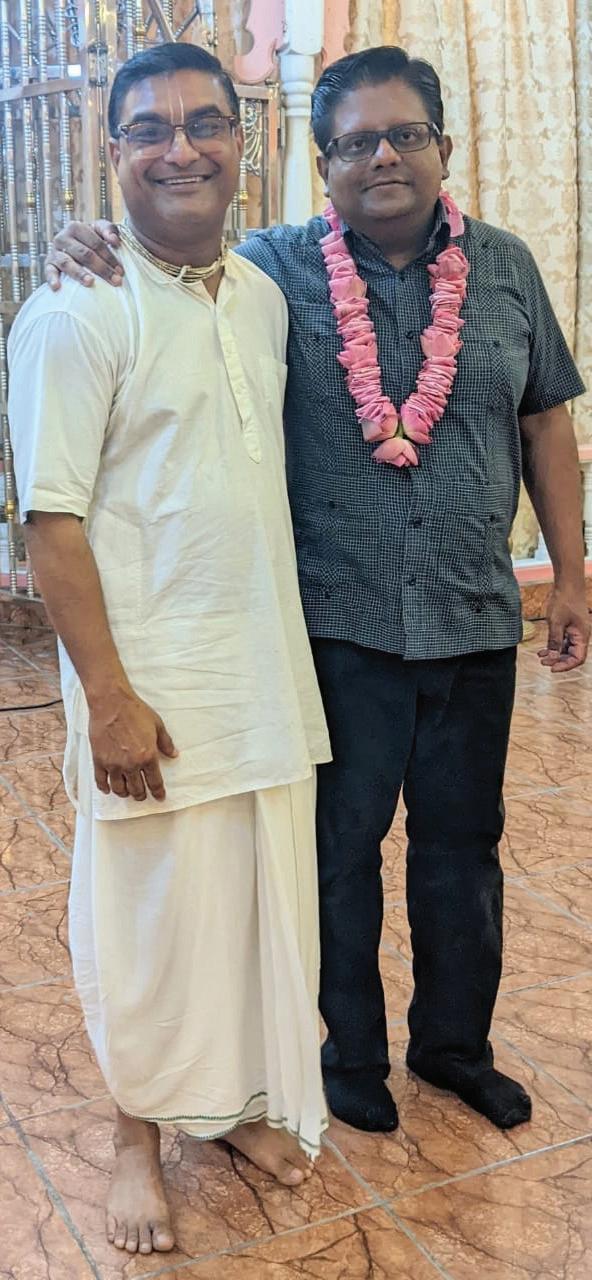
his studies in religion, he learned devotional skills, preaching spiritual philosophy based on Vedic Scriptures, especially Bhagavad Geeta, devotional music songs on Lord Shri Krishna Sang and recorded more than 100 songs written by saints of India.
Kulkarni added that he participated in charitable activities of ISKCON, like “Food for Life” which feeds millions of school children in India.
“I was a monk for 18 years, then came to Guyana sponsored by ISKCON Crane Temple in 2017, after which I got married to Suraya Sukhdeo, a Guyanese citizen in 2018, became Guyanese citizen in 2021 and doing charitable work for ISKCON and is looking forward to establishing the Gurukul Vedic School in future,” he said. Through partnership, Kulkarni is seeking to open the Gurukul Vedic School, a live-in facility with all amenities for a comfortable
dren and that they would be enlightened about spiritual teachings (Bhagavad Gita) and how to participate in daily devotion before school.
Kulkarni stated that before the opening of the school, a board of directors will be formed, it will be advertised, and sponsorship will be sought. He added that all rooms would be outfitted with air conditioners and sleeping arrangements would be comfortable.
He added that he participates in charity for both the soul and body and would host feeding programmes at the various markets in Guyana as well as at Crane Temple on Sundays.
Kulkarni pointed out that all food is free of charge and entails a vegetarian diet since they do not eat any meats at all.
The Pandit explained that they sometimes feed school children at the primary level and have done so in the past, and once they get sponsored, they will continue that feeding programme
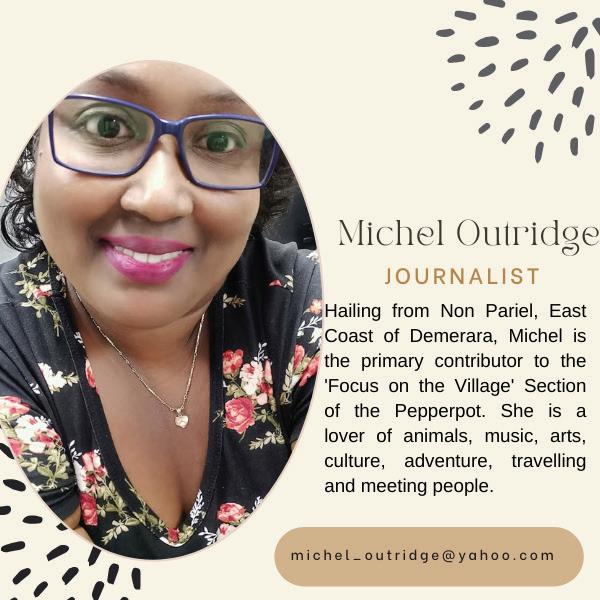
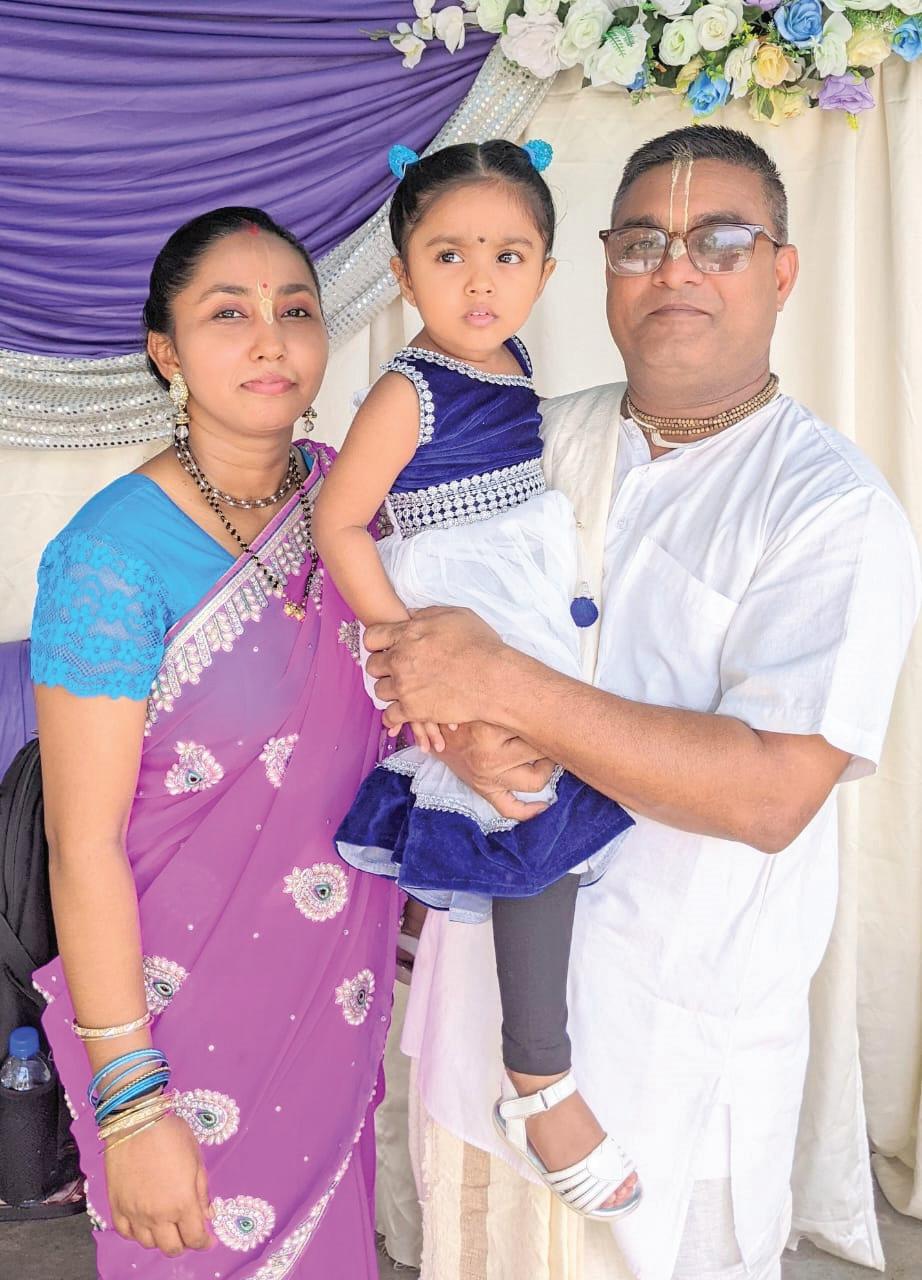

stay for school children, who will see their parents on weekends and during the week, the bus will take them to their respective schools.
He told the Pepperpot Magazine that it would be a safe environment for chil-
in schools.
Kulkarni noted that at Crane Temple, they have a membership of about 215, but their attendance is much more on Sundays. They do six daily offerings in their devotions.
He stated that he speaks eight languages and as a native of India he lived in Pune, which is surrounded by mountains and it was very cool and shady, but here in Guyana, it is hot and humid and he is getting accustomed to the change of weather.
“I like the rain, so the heat in Guyana is very hot and it’s different from what I am used to, but nevertheless, the people have been welcoming, and their support is overwhelming so far,” he said.
INDRA Adams started her career in nursing more than 24 years ago on Wakenaam Island in the Essequibo River. The circumstances at the time were not especial-
resources and training.
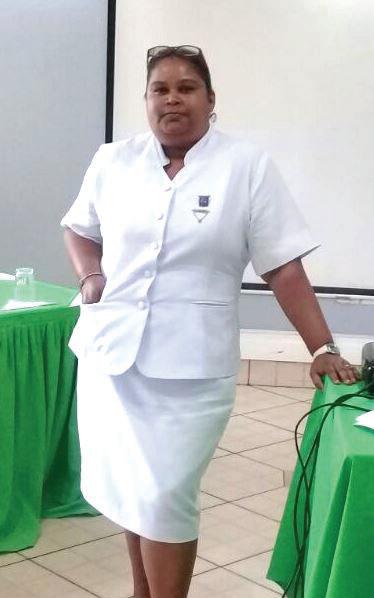
ly favourable, and getting the job done efficiently was much more difficult than it is today, when nurses undoubtedly have better access to
Zeelandia, the community where Adams was born and raised, had no health post; the Wakenaam Cottage Hospital was located some distance away. So, as a Community Health Worker (CHW), she had to ride her bicycle to meet the sick people in the community.
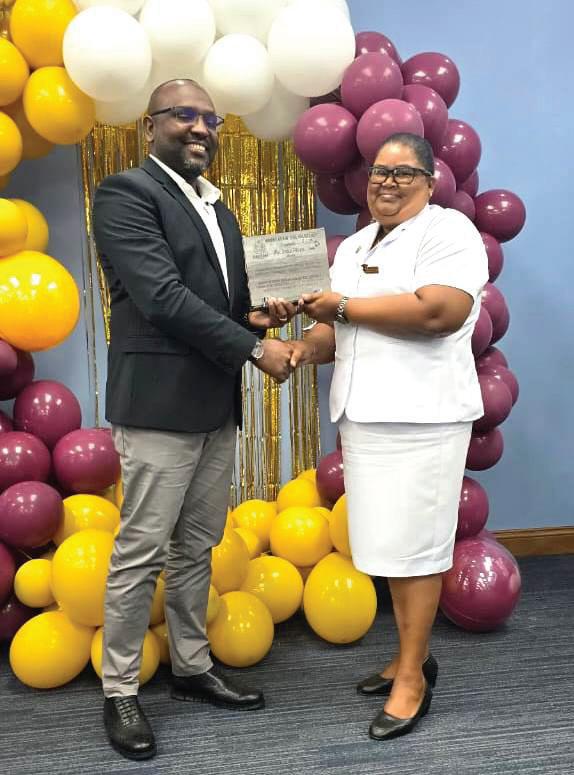
Her eldest sister was a nurse, and Adams always admired the manner in which she worked. So, with inspira-
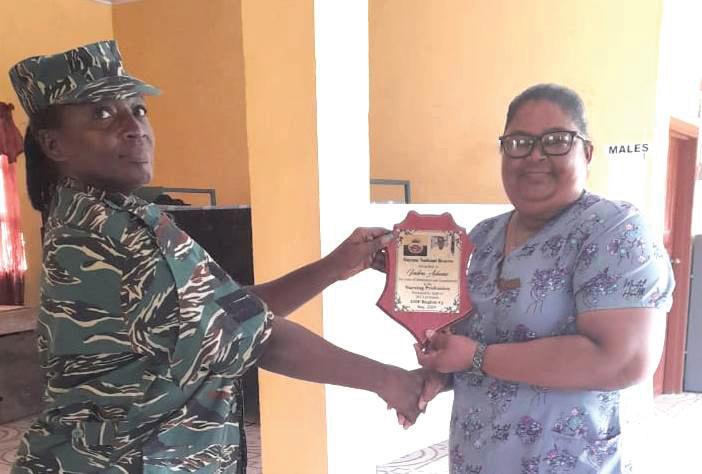
others, she decided to start out as a CHW, assisting the elderly, pregnant women, and children.
“It was very hard back then to get to patients; we had to use our bicycles around the island,” Adams shared in an interview with Pepperpot Magazine. With 10 years of experience as a CHW, Adams left the island to continue working at La Grange Health Centre before training for midwifery.
With such training in hand, she began working at Windsor Forest. By this time, things were much more developed, and she had more resources to work with. Adams, like many other nurses at this time, was able to produce better work.
The challenges aside, though, Adams, who now works at the Den Amstel Health Centre, West Coast Demerara, said the love for nursing has to be there before someone becomes successful at it. “Being a nurse, you really have to love the profession. We all need a job, but you have to love nursing, or you wouldn’t be able to do it.”
And such love moves her to extend herself to others so that she is happy to help them with transportation money to attend clinic or do necessary blood tests. “Sometimes people don’t come to clinic because they don’t have any money, and I would call them and tell them to borrow the passage and I will give them
SEE PAGE XIX
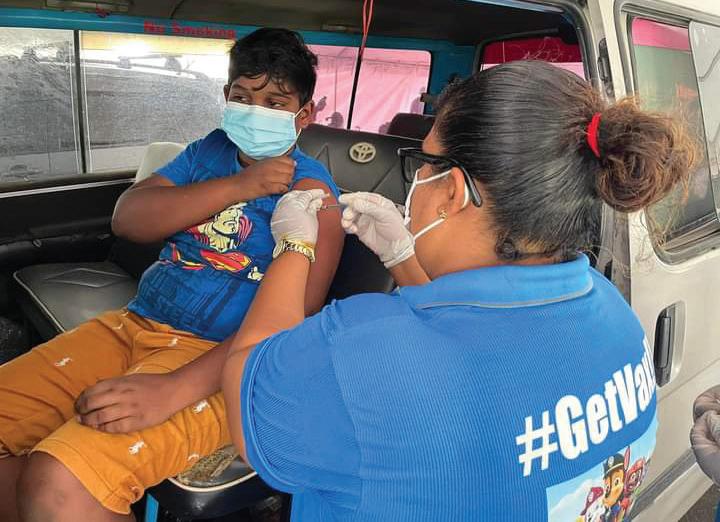
KARON Lewis knew from an early stage in her life that she was destined to make a difference in people’s lives and qualified herself as a public school teacher who invested more than 34 years in the noble profession before she retired and volunteered with an elderly group.
Lewis is originally from Corentyne, Berbice. She was
an Eversham resident educated at Eversham Primary School and Corentyne Comprehensive High School.
As an energetic young woman, she loved children and saw the need to assist them academically, so she joined the teaching profession, serving close to 35 years before she retired.
Lewis, a mother of three and a grandmother of three, told the Pepperpot Magazine that she started teaching at
the primary level and the first school she taught at was Salem Primary School and has taught at other schools in Region Three (Essequibo Islands-West Demerara).
Today, Lewis is a fulltime volunteer with the Tuschen United Elderly Association, a non-profit, non-governmental, humanitarian group which was founded in December 2017 and has a membership of 45, all from the neighbourhood.
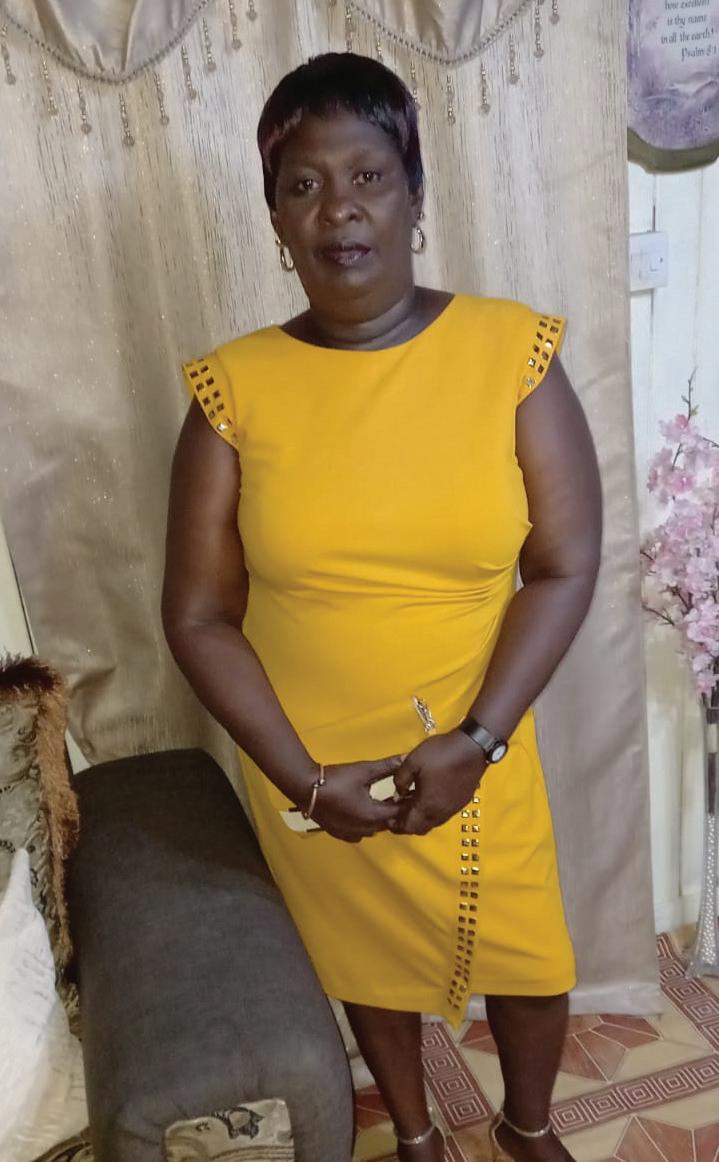
She reported that the elderly group is registered with a structure comprising a President, Vice President, Secretary, Treasurer and its Directors.
Lewis stated that the objectives are to care for the well-being and general welfare of its members, including health,
recreation, monetary and spiritual.
She explained that each member is relied upon to give a monthly subscription for the NGO’s upkeep and participates in all fund-raising activities.
The volunteer added that, from time to time, other NGOs would visit to assist in whatever way necessary to keep the elderly group functional.
Lewis reported that she is a resident of Tuschen, East Bank Essequibo, and wants to contribute to society in a meaningful way. As she was nearing retirement, she decided to become a volunteer with the Tuschen United Elderly Association.
She disclosed that the NGO was established by the late Stanley Cook and two others, and they met every last Friday of the month at the Tuschen Health Centre since they did not have their own building.
Lewis pointed out that volunteerism is fulfilling for
her because she has much to do with her time as a retiree, and instead of sitting idly, she wants to remain active.
She stated that the funding for the Tuschen United Elderly Group comes from the members’ own pockets, donations, and money garnered from fund-raising events.
Lewis told the Pepperpot Magazine that they would get donations from Food for the Poor Guyana, and then they would distribute to the members, who are all elderly people with varying needs, with the oldest in the late 70s.
She related that, at the time of the interview, they were planning to host a Mother’s Day lunch for the members based on donations received.
Lewis added that, as a volunteer for the past six years, she would often have to go into her pockets to fund activities for the NGO, but she sees it as a blessing.
“Volunteer work isn’t glamourous, not about dress-
ing fancy, sitting pretty and waiting around but it is more hands-on kind of work that you have to do yourself because others are depending on you to make it happen,” she said.
Lewis admitted that volunteerism is hard work and dedication to a common cause, and it entails long hours and a lot of dialogue, but she signed up for it, knew what she was getting into, and doesn’t mind at all.
“Working with the elderly is a sharing experience for me because I am familiar with dealing with children as a school teacher and this is different (volunteerism) and it gives me the kind of satisfaction as a senior citizen,” she reasoned.
Lewis noted that, at the elderly stage, receiving the support you need is vital for preserving life, and knowing that she is making a solid contribution is far more rewarding than having a paid job.
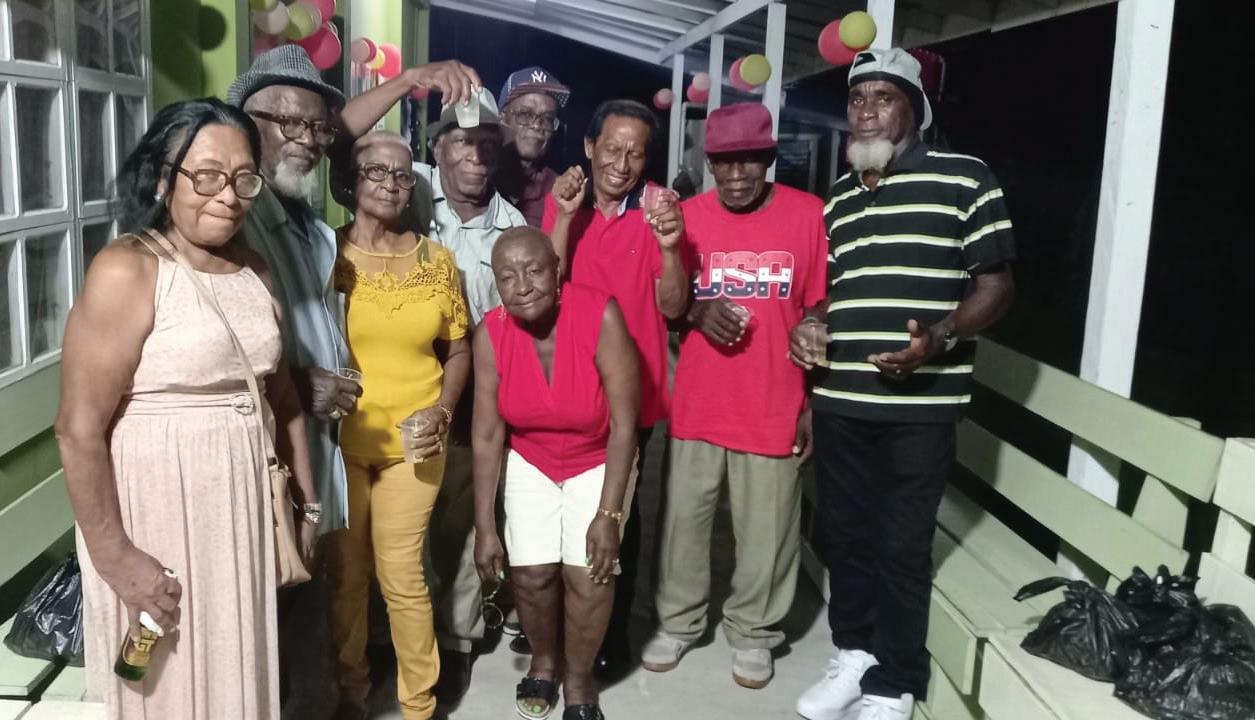

LA GRANGE is one of those quiet communities that hundreds of people traverse every single day, but very few take the time to stop by. The community is located along the West Bank of the Demerara River. Home to several hundred people, the community has a vibrant mix of people of all races from all corners of Guyana. The community lies south of the Demerara Harbour Bridge, in the centre of the region’s development. The West of Demerara is undergoing major developmental works presently with the addition of massive linkage highways to a new state-of-the-art four-lane bridge. However, a few questions remain about a community changing as quickly as in La Grange. How will the massive change impact the community? Has the development impacted the village at all? And what impact do the changes have on the people of the community?
A deep agricultural past.
La Grange is a massive community covering several miles along the bank. This week, the Pepperpot Magazine focused on one of the most popular aspects of the community, Independence Street. Popularly known as Middle Dam, Independence Street is one of the oldest settlements on the West Side. Tucked away in a closeknit street in La Grange, just off the Harbour Bridge, Independence Street has seen change first-hand. The community has agricultural roots that have evolved into a major linkage path and continue to stand on the cusp of development.
Issaac Bhagwandin’s home stands out among the other houses on Independence Street. A Justice of the Peace, Issaac has been an integral player and pillar of the community. Born and raised in Middle Dam, he says that the village most know today is very different from the one he knew as a boy. “As a young man, we had mud roads. Then
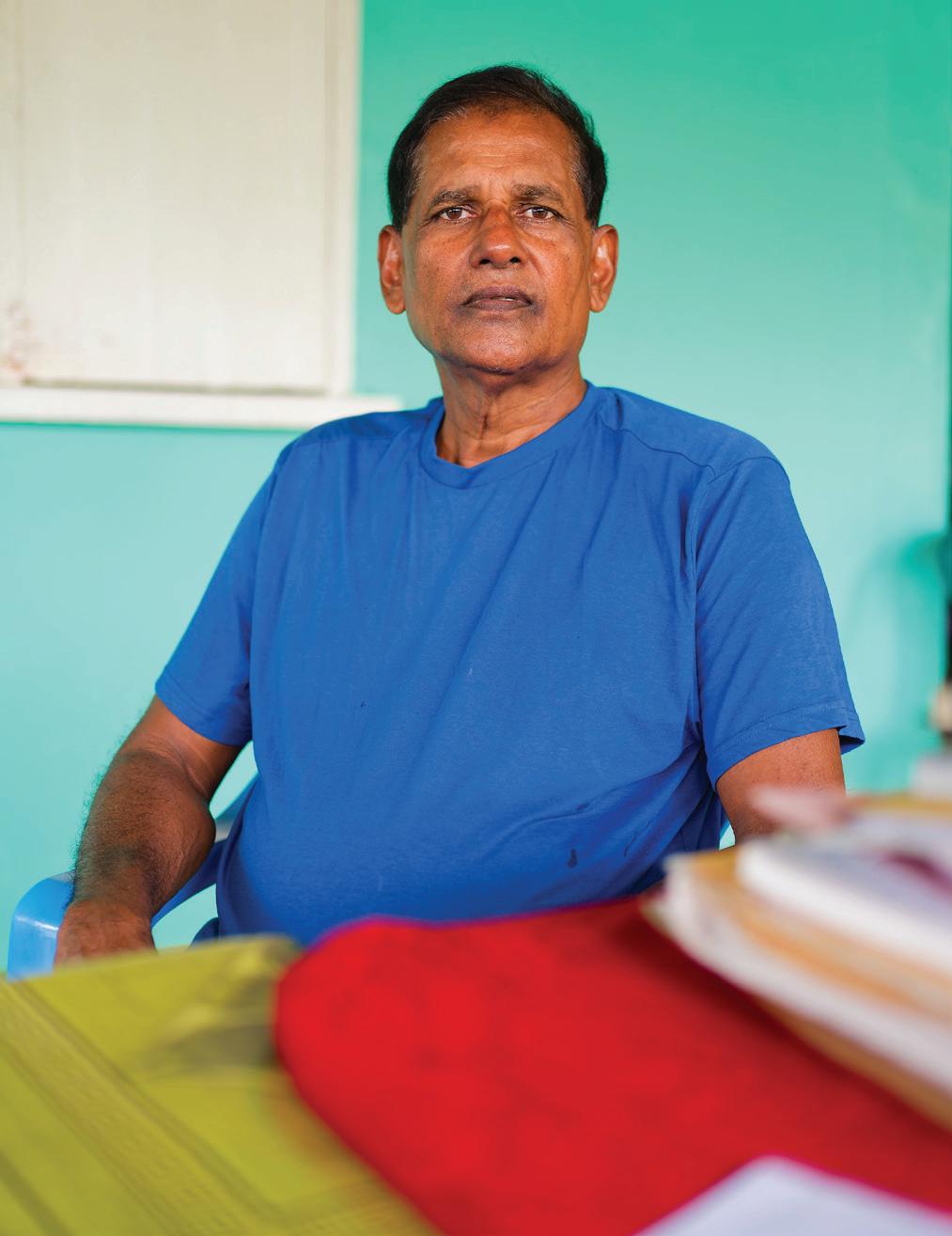

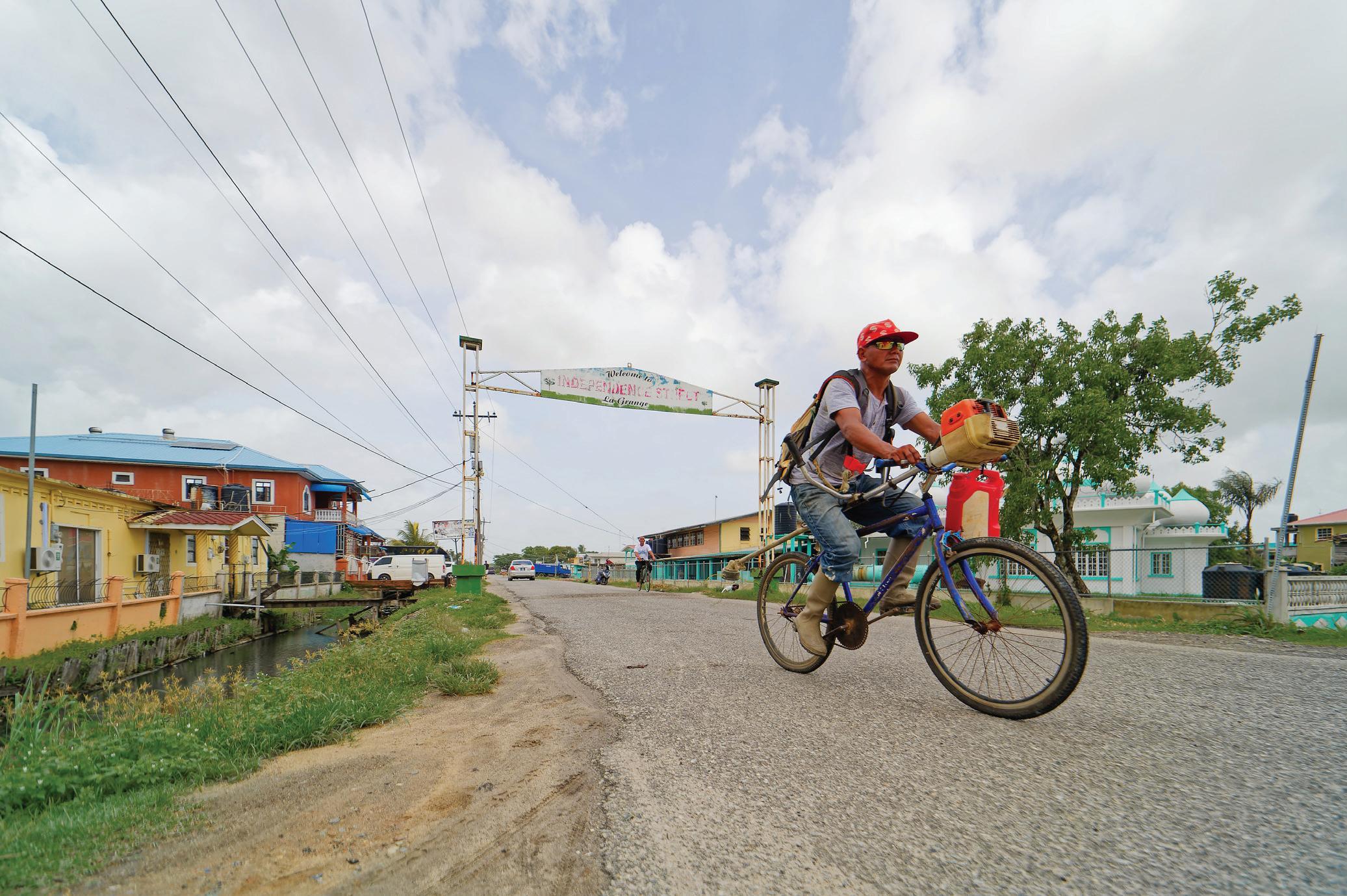
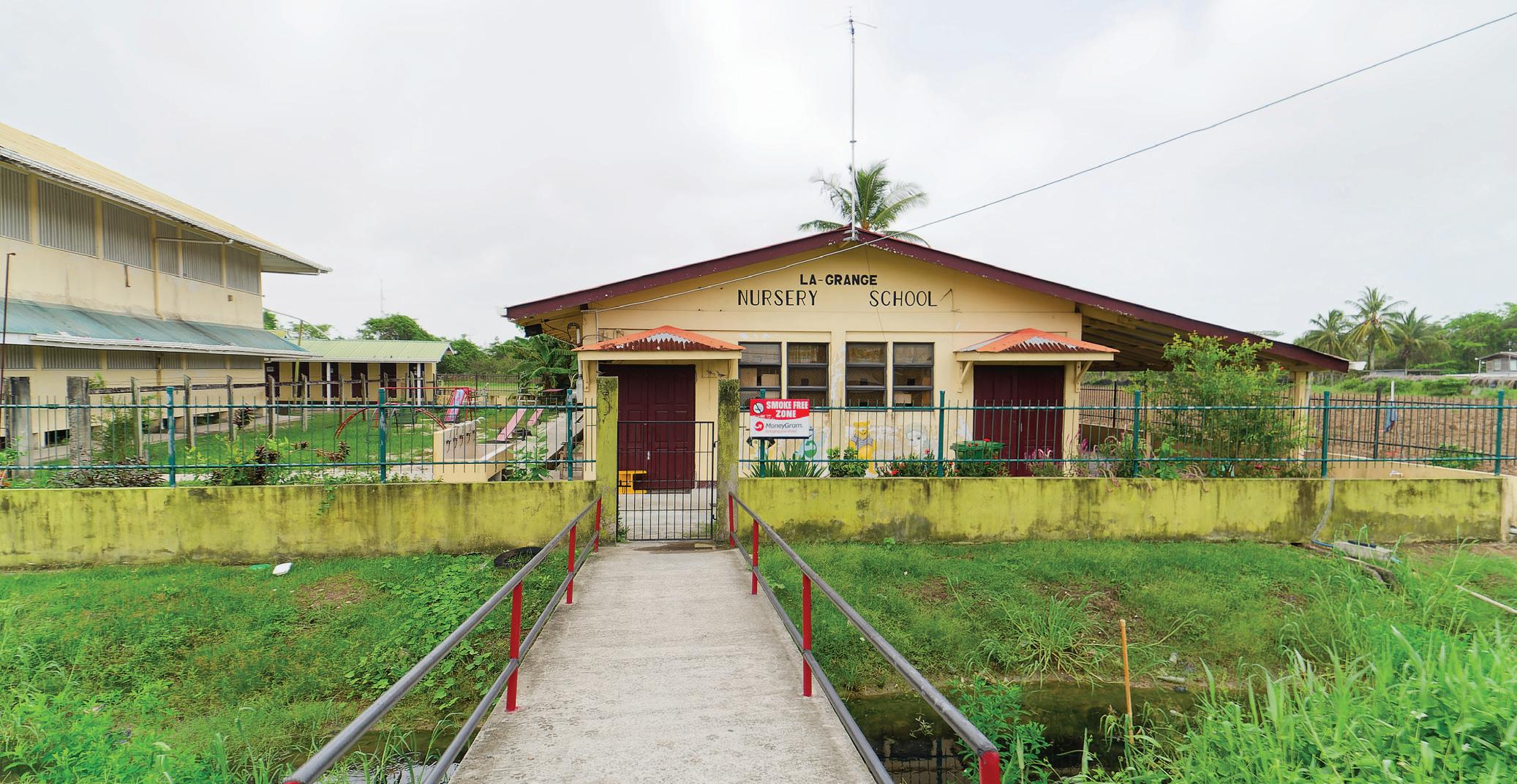
they used to throw sand and burn bricks on the road. In comparison today we have a very good road. The only little issue about it is that the road is a bit narrow. Because many persons have vehicles, there is traffic congestion,
SEE PAGE XXVII

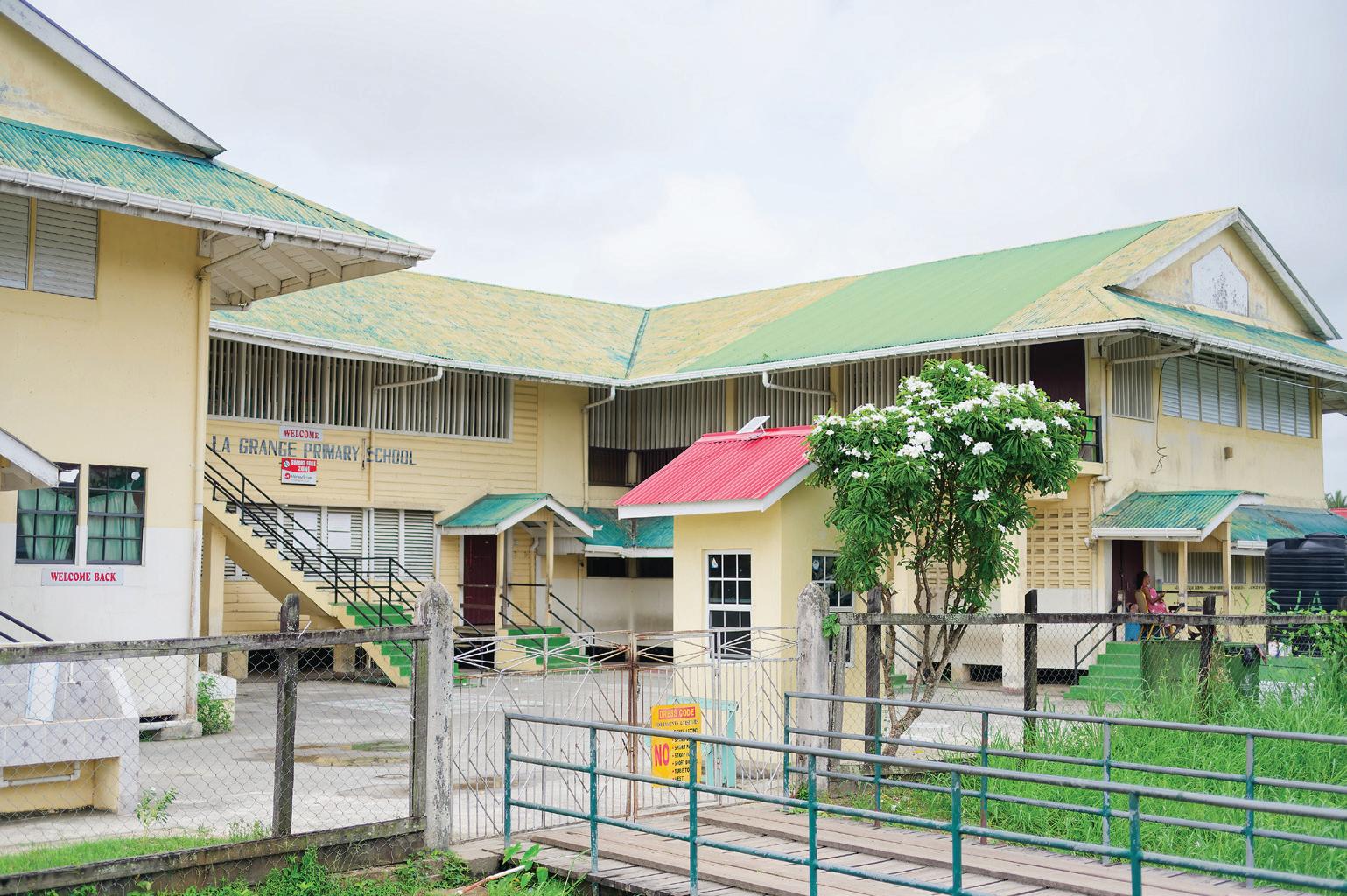
WHAT comes to mind when you think of living in the countryside? Is it plush green acres of rice lands and fruit trees? Clean blackwater canals or a troop of adventurous young men exploring the dense forestry? Aziz Mazarali describes all of this and more in talking about the community of La Grange decades ago. Inde-
industrial site, as many would suspect. Independence Street is still name and nature. It is a quiet and easygoing community, where neighbours still live like family, and farming is the order of the day. And according to most villagers, their authentic way of doing things will always remain, just like their good nature. Surrounded by change, La Grange continues to hold on to its roots.
Forty-three-year-old Aziz
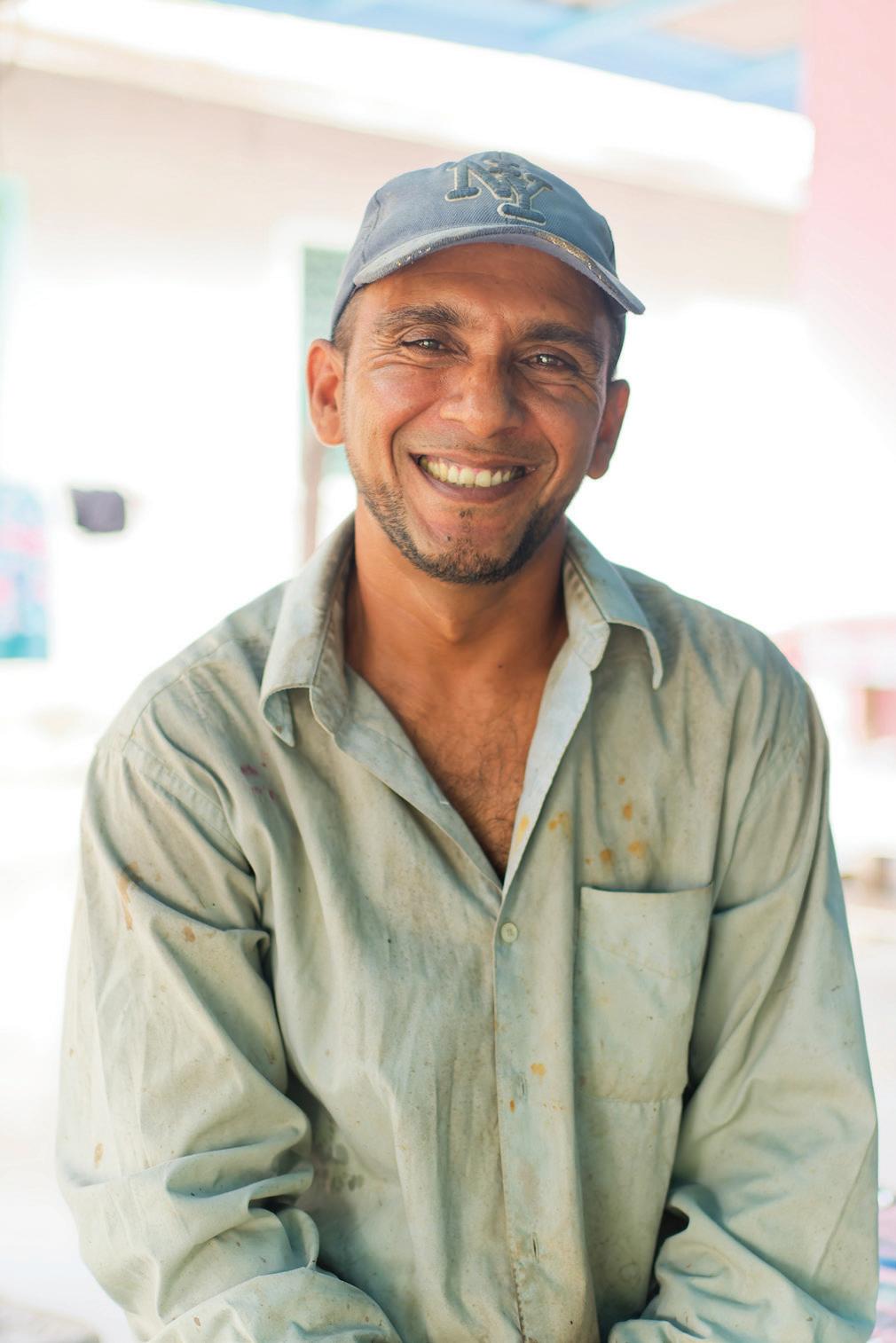
pendence Street La Grange is a unique community. Surrounded by industrial development, Independence Street continues to preserve much of its old way of life and traditional agricultural practices. The community is slated to be among the development hubs, and the rest is in the centre of infrastructural changes. However, the community barely resembles an
is West Side born and bred, with Independence Street being the only home he has ever known. Growing up on Independence Street before it was the blossoming hub it is today is reminiscent of life far from the capital city of Georgetown. But just beyond the Demerara Harbour Bridge and the majestic river it crosses, life on Independence Street is still quiet, which many call ‘country
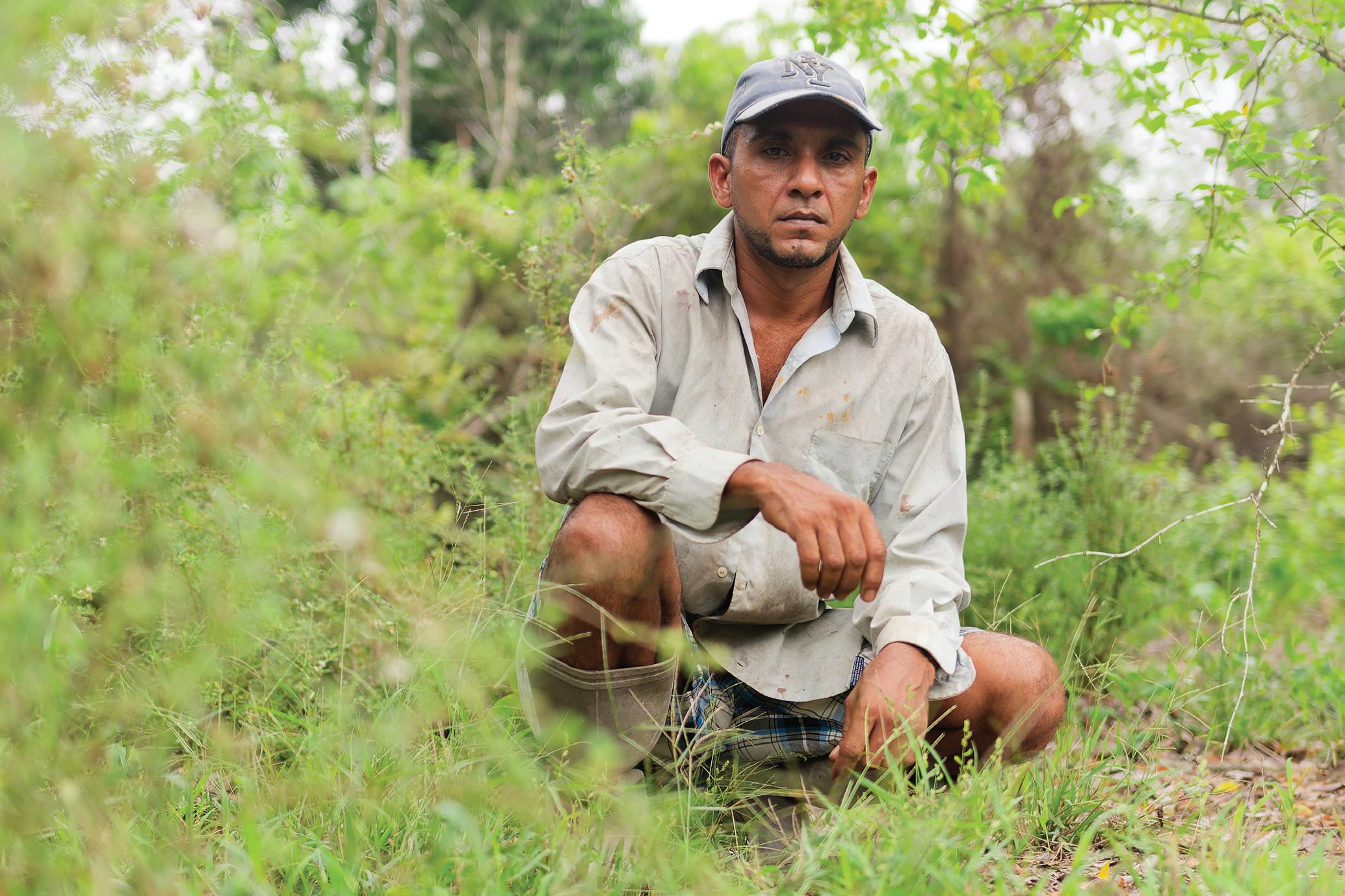
living’. Originally a farming community, Independence Street and greater La Grange was home to agricultural excellence.
Its various assortment of trees and canals made for an amazing playground for young Aziz, unlike any other. As he reminisced, “ I was born and raised in this house across the road. Growing up, we used to swim in the trench. We used to go fishing in the water. We used to bathe and wash and everything in the water. When you mess it up, our parents would beat us. But growing up in the village was nice and quiet. Everybody knew everybody.”
Like so many of Independence Street’s inhabitants, Aziz is also a farmer in his spare time. According to him, although a residential area, most of the people in his village have at least a kitchen garden. A few small gardens here and there are not unusual for most commu -
nities. But, Independence Street hosts a strong agricultural presence. Behind most of the community’s homes, a farm of some kind could be found. Some villagers take it to sell produce or simply share it with others. As Aziz shared, “Most people have their jobs. They go out and work. But some still farm part-time. Some people do cattle.”
Although agriculture is very much alive and well in the village, most people do it as a pastime, a lifelong practice that has become a tradition. Many people are reluctant to do farming on a large scale, except for a few. Many argue that agriculture just is not profitable in the area. But this raises a few questions. Why is farming not profitable in a commu-
nity as agriculturally rooted as this one? Why do people continue to pursue farming?
Aziz has seen Independence Street change throughout the years, from a village characterised by basic necessities to a blossoming community. To Aziz, the major issues with farming in the community lie not in agriculture itself but in marketing. Independence Street has a vibrant agricultural sector, but it is easy to miss unless it is looked for. Aziz explained, “In the community, everyone knows how to farm, but very few know how to market. “I think the issue with farming in the community is marketing. Because when you’re done, and you get the produce, you don’t get the market. And when you don’t get the market, it costs you to invest. It is not so profitable.”

But why are people so committed to farming? The community of Independence Street is like many Guyanese villages that hold on to their roots. To the people of this village, agriculture, cash crops and fresh greens are more a way of life than a livelihood. Aziz and countless others have been raised among the farmlands. In a rapidly changing landscape, the village holds the authenticity of agriculture.
This is not to say they reject change. On the contrary, the village has accepted and adapted to the development extremely well. There has even been government intervention to boost agriculture in the community further. But to many, farming is simply the way they do things. Aziz shared, “So most of the people don’t give up on farming. Some of the people who farm right now they just put the produce right on the road. Right now, because of the scheme, a lot of people pass. And they get fresh stuff. These are the few people that farm.”

A La Grange father tells of the wins and losses of a family business.By Shaniya Harding
FAMILY bonds are common. Every day, families support each other in many ways. From caring moms to ever-supportive siblings, families are meant to be there for each other. And at the end of the day, one family’s success is a win for everyone. Koomnauth Ragnauth holds his family close to his heart. A father of three has been a woodworker and craftsman for more than four decades. His business has grown from a little one-man operation, which began when his father died, to a family-owned enterprise that works with countless stores around Guyana. However, he says his biggest accomplishment throughout this journeyhas been his family.
Koomnauth, also known
as Par, has lived on Independence Street La Grange for several decades and considers it his home. Par has become a well-known figure in the little village of Independence Street. He gained notoriety for his excellent craftsmanship. Par, his wife and sons are known for their wide array of high-quality furniture. With intricately fitted pieces and beautifully polished wood, people come from far and wide to Par’s furniture store seeking handmade pieces for their homes and businesses. His career has come a long way; however, as a young man, Par could not imagine becoming as successful as he is today. He grew up seeing his father working long hours with wood and saw.
With the death of his father when he was still a teenager, Par was thrown into a
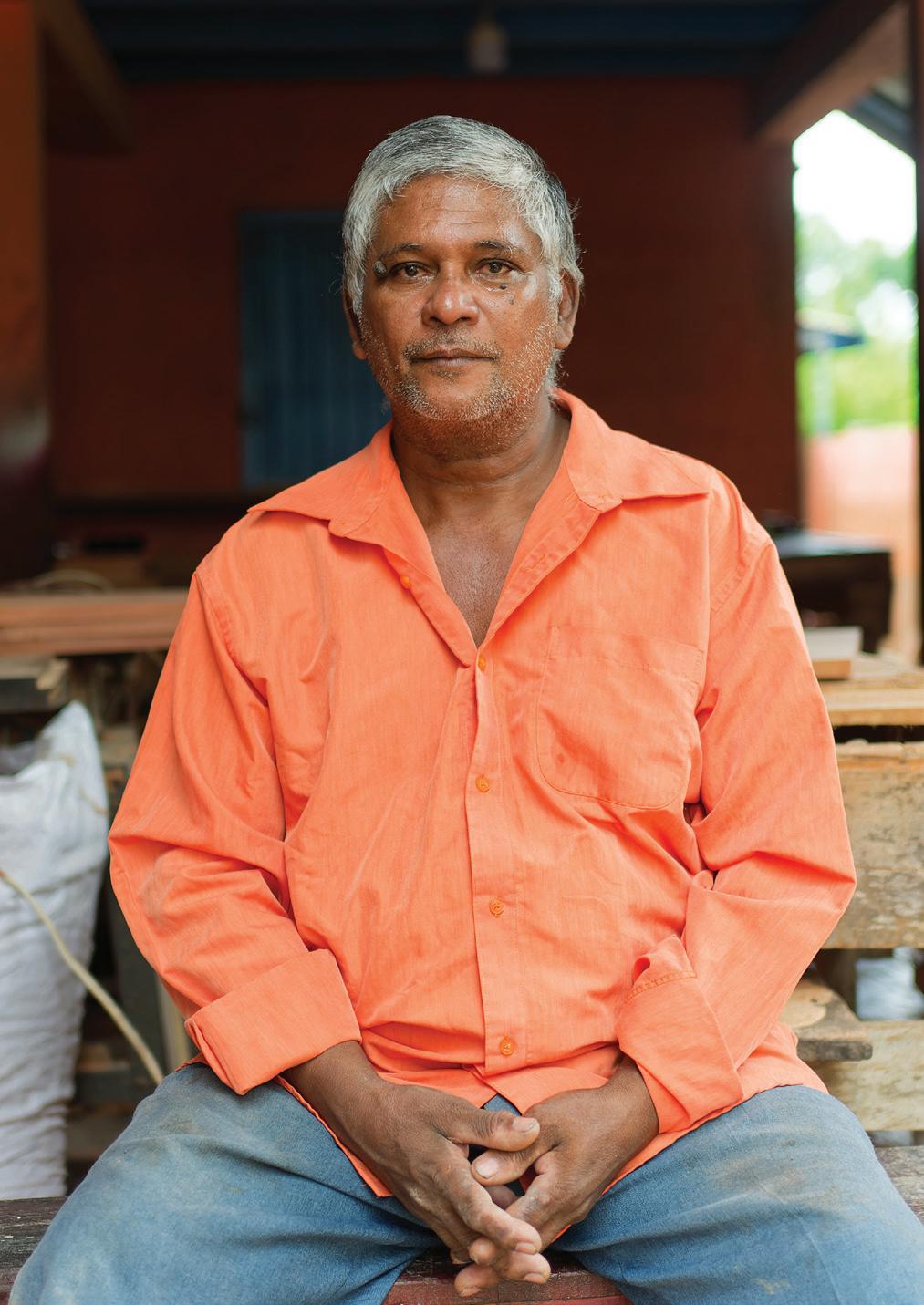
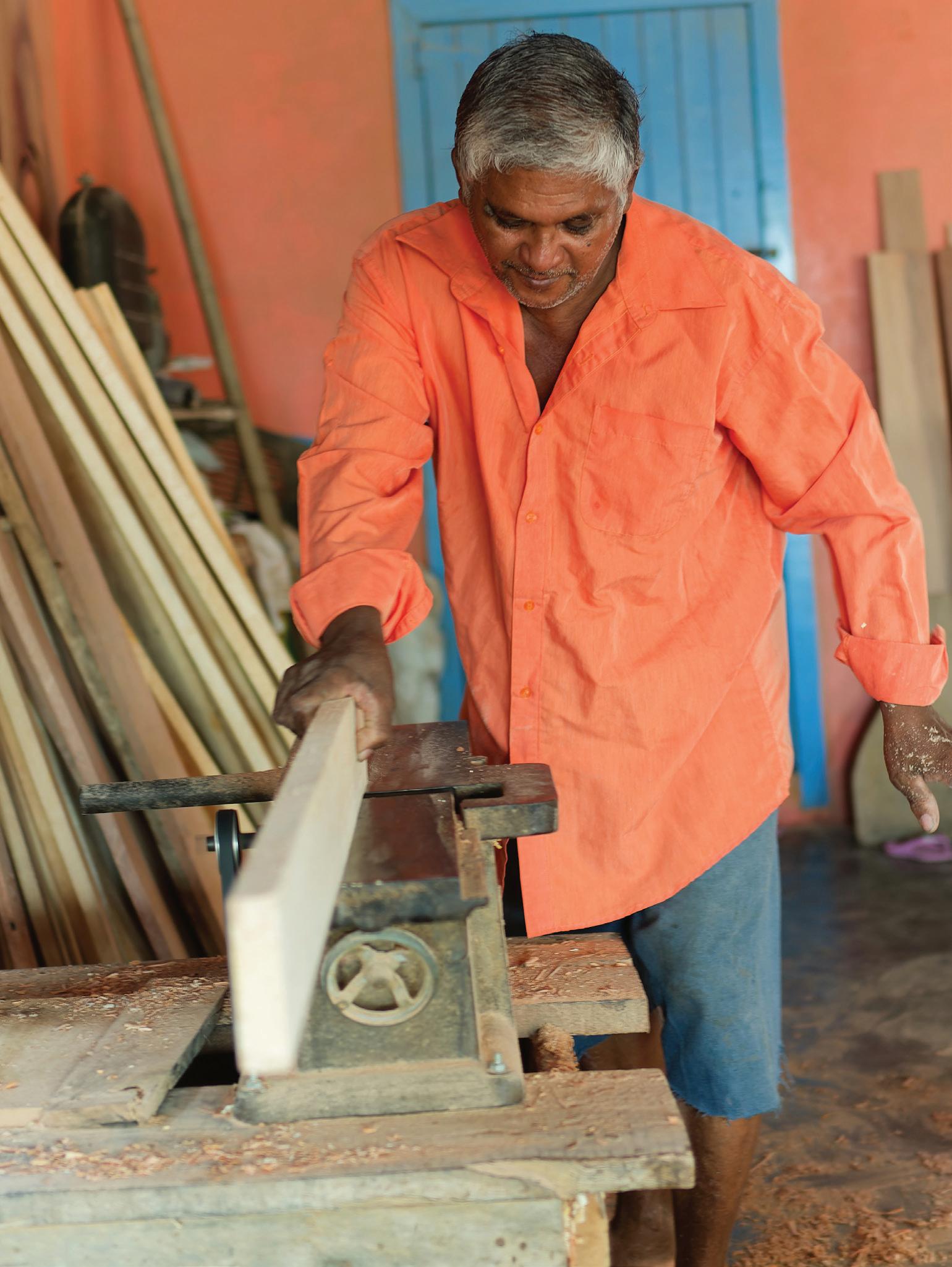
world of work he knew very little about. But as a young man from a modest family, he knew he had to take up the mantle. As he shared, “I started learning this woodwork in 1977. My father died on February 27 1977. And when he died, we did not have anybody in hand to help to work and my family. So, I spent some time in a workshop. By the end of 1978, I had already known how to do the work.”
Equipped with what

could still be considered basic knowledge, Par set out to begin his own career. He described his early years as turbulent. Par has worked with numerous companies and people for many years, but he has always had an entrepreneurial spirit and longed to do something on his own. His business originated in his small home
in Georgetown. Par started his then-blossoming business with the support of his wife, his modest skills and a few pieces of wood. As she shared, “At that time, I used to live in Georgetown. Me and my wife were renting a house, and the people told me I could run a little business in the yard. I began doing that in 1987, and right away, we got

work from Guyana Stores.” Par’s little workshop quickly took off. The more he worked, the bigger the business grew. Within the next few years, he had developed a successful venture with his wife’s support. But there were still much more for the family to undertake, and a home of their own was next on the list. The father of three young children moved to Independence Street some 33 years ago. The community was still called Middle Dam, a name given to the community because it was a small farming dam between two major roads. But in those days, Par said Middle Dam was indeed just a mud dam. As he shared, “Me and my family moved here in 1990. The place had mud roads. And plenty people asked me why I came here to live. But I did not move. I said we were going to stay and open the workshop right here.”
This optimism is perhaps one of the reasons for the family’s success. The hardest time for Par was the schooling of his children. Having three children to send to school, some two miles away, was a trial itself, but tough financial times meant the family had to band together. “It was hard for a piece of time. I had all three children going to school, and we did not have roads or transportation, so I used to ride out and ride back in.” He further added that his biggest accomplishment to date was educating his children despite the challenges, “The thing I am most thankful for is being able to give my children a good education. I sent all of them to school, and they came out with good grades and got good jobs.”
Today, Par’s business is truly a family affair. His children often play major roles in Par’s business operations. He greatly credits his wife for the business’s rise as well. As he shared, “My wife was very important. She worked with me wholeheartedly. She was with me foot to foot. She would help me hold wood. Me, her, a contractor and a porter built this house.” Par and the Ragnauth family showcases what it means to be family, supporting each other throughout life’s challenging moments and trying times.


her son, Andrew, gave his first lecture on Chinese Finance as an invited speaker at the University of Toronto in 2023. Cindy created the Sinclair Consulting Services Global Scholarship to enable students the opportunity to gain real-time experiential learning and research experiences in low-middle income countries and also co-sponsors two scholarships at Embu University in Nairobi, Kenya, enabling deserving students to pursue a university degree that would have otherwise not be possible for them. Through these initiatives, Cindy empowers students to achieve their academic aspirations that might not have been possible.
A mother leading by example
After dedicating 25 years to her career, Cindy finally found the courage to embark on academic studies. She received acceptance into the University of Toronto Bachelor of Arts (BA) degree programme in 2000 and pursued a degree in History and Fine Art History as a part-time student and studied
FROM PAGE II
17th-century history in Oxford, England, with her favourite history professor, Ken Bartlett and graduated in 2005. Missing academic studies and needing more knowledge to fulfill her mission, she applied for the Master of Education degree in sociology and equity studies two years later and graduated in 2009.
Cindy said, “I enjoyed being in the classroom, listening to lectures, studying for exams, and hanging out with fellow students even though my children, especially my oldest son, often wished I were at home. But driven by a sense of purpose to transition immigrant doctors into the healthcare workforce to support the shortage of doctors that affected largely the marginalised and multicultural immigrant population, I felt compelled to pursue further education. What was most joyful and memorable about this decision was the fact that I graduated within weeks of my oldest and youngest sons, who received their PhD degrees from the United States - Yale and Cornell University, respectively and are now a Finance Professor and a Data Scientist.”
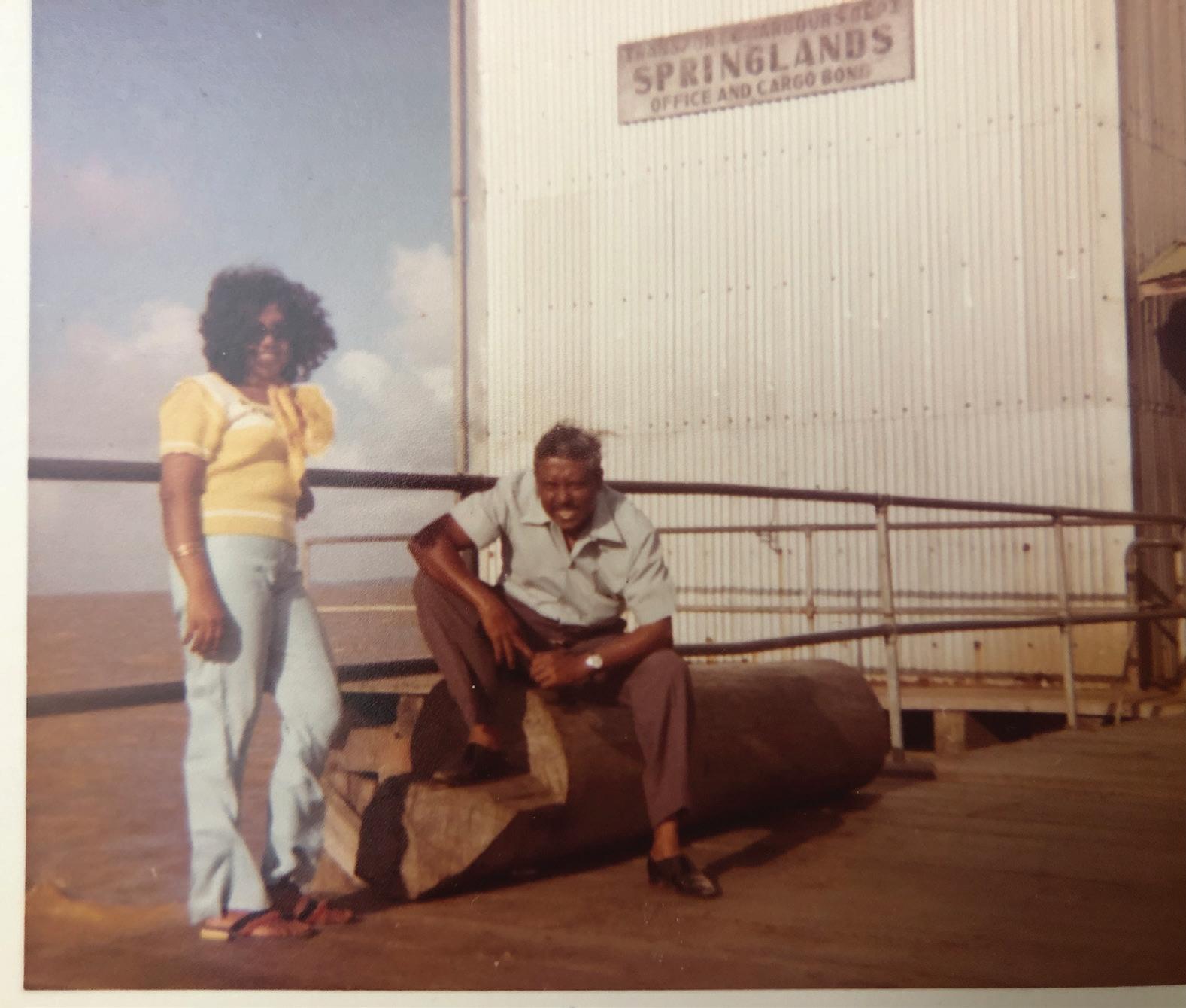
“I was incredibly proud,” continued Cindy. My parents (Ernest and Ruby Sookraj) are astute entrepreneurs with only grade Six and Eight education, respectively. I was the first of 11 siblings to come to Canada. I was the first to obtain, not one, but three degrees from Canada’s number one university, which ranks among the top 20 in the world.”
A humble start in a new life
Recalling her arrival in Canada, Cindy disclosed, “I arrived with one suitcase in hand to attend a business college. After waiting for several hours at the airport for my aunt, I am extremely grateful to a Guyanese couple who offered to take me to my aunt, who lived in the Kitchener/Guelph area and grateful that she was able to arrange my trip to my business college in Toronto. She said that the staff kindly secured an interview for a live-in

babysitting job in exchange for room and board and showered praise on Alison Prentice, who was a PhD student and wife of Dr. James D. Prentice, a leading physicist at the University of Toronto, for accepting her after realising that she did not have a place to live.
Looking at it all
Cindy gives back generously to the University of Toronto, local and international communities. She serves on several boards, such as the OISE Alumni Board, its mentorship and diversity committees, the Ontario Public Health Board, and its Anti-Racism Working Group. She is Vice-President and Education Chair of the Sinfonia Toronto Orchestra with a mission to take the orchestra into underprivileged schools for rehearsals for upcoming performances to introduce students to classical music and instruments. A passionate trailblazer, leader and mentor, Cindy is the holder of the Top 25 Canadian Immigrant Award and, more recently, the African-Caribbean Distinguished Scholars Award.
From Babysitter to Typist to Academic Faculty, Cindy loves helping others and being a mom and a grandma. Her family is her joy and pride. She loves to travel and has visited, studied and presented her research in Italy, Ghana, Kenya, Europe and Australia. She promises to continue to advocate for integration of immigrant doctors in the Canadian healthcare workforce to support equity in healthcare for all people of Canada despite their cultural diversity.







SACHIN looked with keen interest at the exquisite gold and diamond jewellery in the showcases of the jewellery store. He wanted something divine that could speak what he felt in his heart, and after visiting four high-end stores, he
found the perfect necklace. He smiled with satisfaction, for Mother’s Day was just two days away, and he had been waiting anxiously for the day when he could meet his mother. He hadn’t seen her since that horrific night 20 years ago, since the
fire and hearing her terrified screams, the last thing he had heard.
He had been six years old and many nights after he had awoken, he heard her screams and cried out for her. His father had always tried to comfort him, but Sachin

would pull away from him with fear. Somehow, in the child’s mind, he was a dark monster.
Time had gone by for the little boy in a strange place and a new house that was not home. There was no one in the streets to play with, and the ice cream van did not pass there. Nothing was mentioned about his mother until two years later when the father remarried, and he told Sachin, “Your mother is no longer there, so I have to move on with my life.”
That news could have devastated the child even more, but somehow, he knew in his heart his mother was still alive. As he grew up under his strict father, he immersed himself in his studies and joined two sports clubs. It had made the trauma less painful and he had made a vow in his young heart, “I will find you one day, Mom.”
He couldn’t remember everything about her, but he remembered her beautiful smile, her long hair with a floral scent and her tears whenever his father hurt her. His father was often angry and impatient,

and he had come home that night in an intoxicated state.
The power had been off, and his mother had lit a lamp
had started to build in him since he began his studies at university, as he became bolder and more assertive

and a few candles. Sachin had awoken upon hearing his father’s angry voice and opened his door in time to see him roughly push his mother and throw the lamp at her.
The flame had caught onto her clothes, and she screamed for help as she tried to put it out. Sachin had run to her, but his father had grabbed him and carried him out of the house, leaving her burning. He had kicked and bit him, but he couldn’t break from his strong arms to save his mother. That night, the little boy had seen his father’s dark side, so he was not as close to him as father and son should be.
He lived with the hope that one day, he would be strong enough and bold to break free of the mental shackles on him. A change
when speaking on issues. On his 21st birthday, he had felt it was time he faced his father, and he said to him steadily, “There is something I need to talk to you about, Dad.”
The father had sat down and looked at him with a slight smile, proud of his achievement, graduating with a distinction in engineering.
“Sure, what is it, son?” Sachin had taken a deep breath and said, “You never told me anything about my mother.”
His father’s expression had changed and Sachin saw a glint of anger in his eyes. His voice was calm but cold when he answered, “What would you want to know
FROM PAGE XIV
anything about her after all these years?”
“Because I kept her alive in my heart.”
“You were only six. What could you possibly remember about her?” he said in a haughty tone.
The love in Sachin’s heart shone in his eyes when he looked at his father and answered, “I remember her voice, her smile and her long hair.”
He was no longer that scared little boy, and he continued, “I remember what you did that night: throw the lamp at her and leave her to burn.”
There was an enraged look in his father’s eyes as he got up and hit the table with his fist.
“She had threatened to leave and take you away.”
Sachin had scoffed in disbelief at the man he had called father, who still showed no regrets for his abusive behaviour and he remarked, “And that made it right for wanting her to die?”
Sachin picked up his bag with a few of his personal belongings and said to his father, “I’ve spent all twenty-one years of my life with you. Now it’s time to find my mother.”
“She’s disfigured and unfit to be seen in society,” he said with disdain.
“In my eyes, she’ll always be beautiful,” Sachin responded calmly, “And you know why?” he paused then stated, “Because she’s my mother.”
Sachin began working for a construction company, rented a furnished apartment and bought a second-hand car from a friend.
“I will build my life on my own, so my mother can come live with me.”
He crossed paths with his father on several occasions and just acknowledged him with a nod. As soon as he had earned enough money, he paid two detectives to search for his mother, but after two years, he received no results. No one knew where she was, as though she had vanished to a far away place.
He had found the house where they had lived, sold by the father and the few neighbours who knew her spoke of hos bad she had suffered after the fire.
That made Sachin feel a deep pain, and he cried inwardly, “Where are you, Mom?”
Three years passed, and he was starting to feel despondent that he may never see her again, when two weeks before
Mother’s Day, he received news from one of the detectives, “I found her.”
That news had filled Sachin’s heart with such joy that it brought tears to his eyes and he expressed with deep relief, “Finally, after twenty years, I can now see you.”
On Mother’s Day, early in the morning, he drove to Berbice and parked just before the Berbice River Bridge. Vendors with baskets of plantain chips and nuts rushed up to him and he bought a few packs, munching on the chips as he waited. Half of an hour later, he saw a vendor pushing a drinks cart to the otherside of the road. He wanted to wait until she had set up her little business, and then he approached her to buy a drink.
“Can I have a Coke please?
“Sure,” she answered with a quick glance at him. She had on a broadbrimmed straw hat and a turtle neck jersey under a long sleeved shirt buttoned down to her wrists, gloves on her hands. He drank the Coke slowly, observing her as she conducted her business. During a lull when he
could get her attention, he asked her, “Are you here every day?”
“No, just some days.”
He bought another drink and said casually, hoping he could start a conversation with her, “I am looking for someone. I haven’t seen her in twenty years.”
“Oh, that’s a long time.”
“Yep, she seems to be somewhere far where I can’t find her.”
“Why is that?”
“She was badly burnt in a fire and had begun a secluded life away from the eyes of society.”
There was a long, deep silence, and then she asked quietly, “Who is she to you?”
“My mother,” he said, looking at her, not caring about the visible scars on her face.
“Oh,” she turned away but not before he saw the flicker of pain on her face.
“I was six but I never forgot her. She continues to live in my heart.”
She didn’t say anything for a long moment and Sachin knew she was battling with her emotions. Then she said without turning to look at him, a slight tremor in her voice, “Maybe
she doesn’t want her son to see her in such a terrible state.”
“That doesn’t matter to me,” he stated, his voice breaking a little, “There is nothing more beautiful than a mother’s love.”
She turned around slowly, tears in her eyes, peeled off the gloves, took off the straw hat and long-sleeved
shirt, and untied the bun, letting her hair down.
His heart was so overjoyed that he saw none of the scars and handed her that special gift.
“Happy Mother’s Day, mom.”
Tears were now streaming down her face and she broke down crying, “My little boy, my Sachin. I’ve cried
every day for you.”
He hugged her, crying, and there was not a dry eye amongst the chip vendors, for they had all put down their baskets to watch the episode of a son and mother reuniting after twenty years. No more heartaches, no more hiding herself from society. She had her son now to give her a new life.
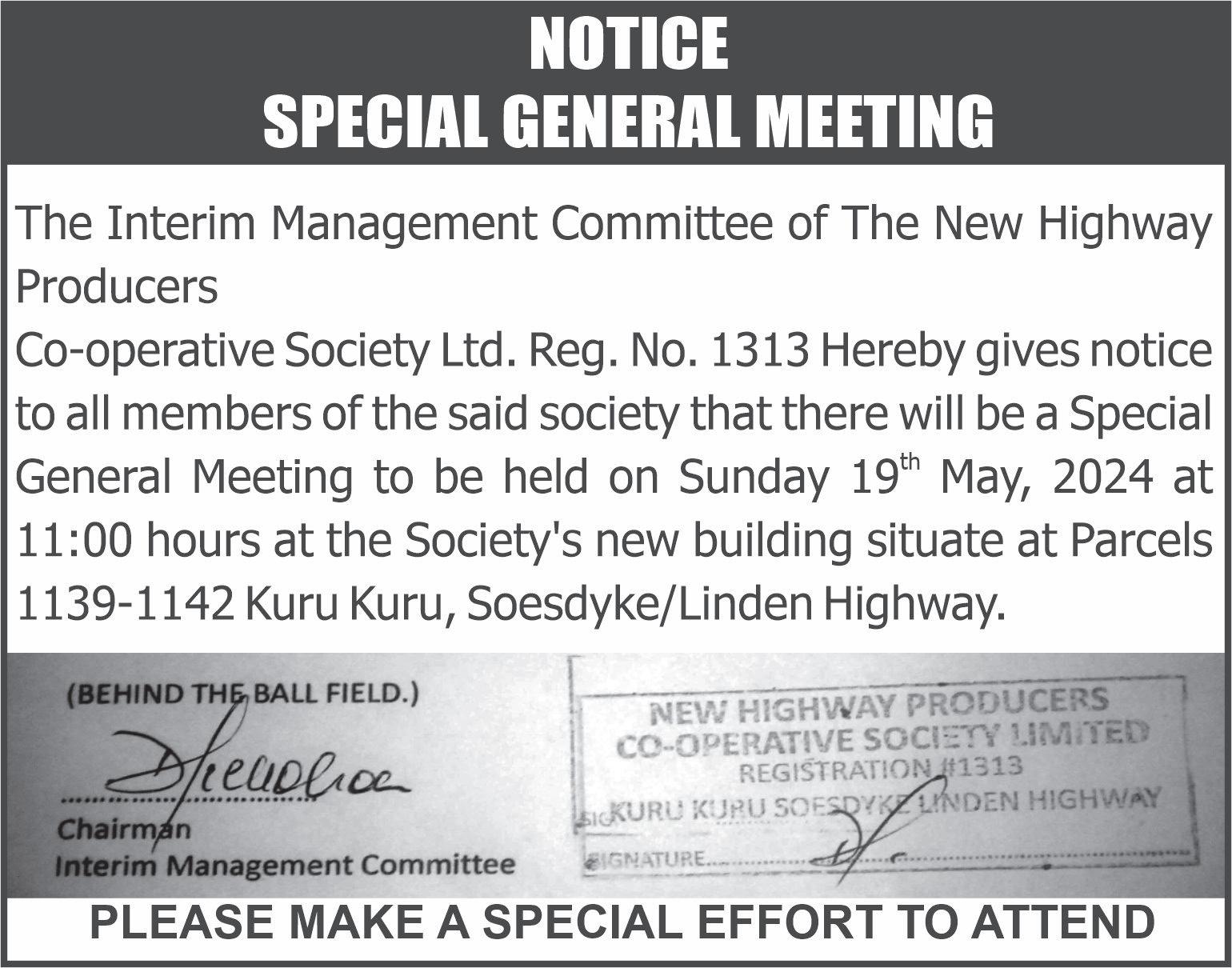


THE records of our environment may hold the secrets of why we take offence to why familiar trees are chopped down, and an old house is torn apart and replaced by a not-so-graceful concrete structure. There is perhaps left a void that shaped the familiar aesthetic value that angrily rumbled within in witnessing an old, but crafted wooden building torn down. It’s a sensitivity, an awareness developed by elders telling tales about things not discussed by the voices that predominate the levels of local media today. Recently, a relative called from overseas with the need for a nostalgic conversation. We spoke from politics to art, to people and places, and how ‘GT’ was becoming a concrete jungle, even in places where the sewage could hardly upkeep the normal medium-housed populations. I promised to write about the old race course and its occupancies. I did this a long time ago, but never published it because the focus then was the expansion of ‘GT’ by the quest for labour from near and far.
Thus, I will have to use the larger story. The initial race course was taken from lands that were described as the backlands of the then-town of Stabroek. This dangerously forested area had to be civilised for this desired race course. This task was addressed under the management of the British governor D’Urban in 1829. By then, the colony was in British hands and was renamed Georgetown. Clearing this area was addressed as was common among slaves, who most likely rented from plantations to do this dangerous labour. Their labour cost was paid to the plantation owners upon conclusion. The first races were held on November 3 - 4, 1829. At that time and after that, it was with an effort to get the nearby outlying villages eager to become part of Georgetown. Werk-en-Rust was incorporated and a new town (Leopold Street area) was created by manumitted Africans and poor whites. It was congested and occupied by shanties. A fire followed, destroying that area. Shanties were made, especially made of troolie and packing cases were forbidden. As the town expanded, the Town Council Ordinance in 1860 attempted to include the villages of Alberttown, the Queenstown ward, Wortmanville, Lodge, Kitty Village and Albouysown, but Alberttown rejected the idea. They wanted to be left alone. The D’ Urban race course continued progressively. It was the sport of the elites, but the support staff most likely came
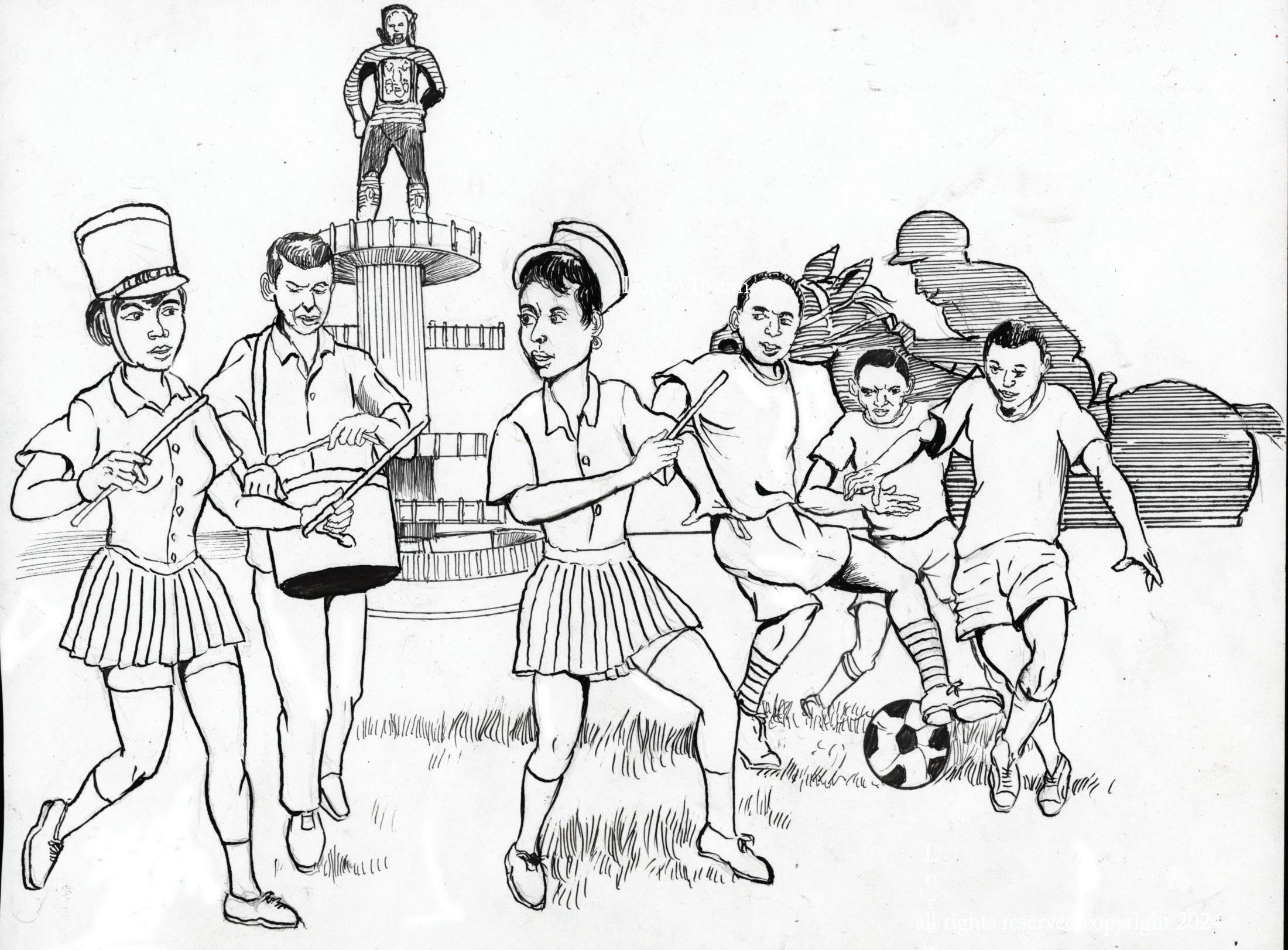
mainly from then Lodge Village.
The modern race course or D’Urban Park, though with the decline of horse racing, eventually becoming ‘Home Stretch Avenue’, retained the lure of activities; some of us in the late 1960s and early 70s can recall from afar, local Woodstock groups (Hippies) yes, we had hippie wannabees, and D’Urban Park was their location. Into the mid-late 70s and early 80s, the location was occupied by football practice, which included the Republican team (Prison) and independent football teams, boxers, and other
health-training groups. Then there were the Majorettes, accompanied most of the time by their drum support and the first vendors, amidst citizens cooling out around the National Hero Kofi’s monument, which embodies Phillip Moore’s masterpiece, our Republic monument. The race course was always tied to the then-old GT villages, now proper wards of Georgetown, through the accustomed cultural memory that passes on, to include the current joggers and driving classes, amidst new vendors from near and afar.






IN April, Health and Safety in the Workplace Month was designated worldwide by the International Labour Organisation (ILO) to prevent accidents and disease, and promote general well-being at the workplace. This year’s commemoration theme was, “We are running out of time: Ensuring Safe and Healthy Work now in a Changing Climate”, and highlights the roles of workers, employers and the State in the workplace.
Climate Change is now beginning to have severe effects on the world of work, and this is experienced by those who work outdoors in physically demanding industries such as Construction and Mining.
Indoor workers who are in hot and poorly ventilated premises are equally at risk. Although our focus will be on the workplace, Health and Safety in the Home Environment are equally important, especially for children and women.
Before the Industrial Revolution, when Agriculture was the main employer, far fewer deaths occurred on the farms than in the new industrial factories with their machines with large numbers of workers congregating under one roof. Workers would die or be injured from unprotected saws, falling debris, heat of the unventilated factories, and inhalation of

dangerous dust or chemicals. In industries such as mining, construction, logging, security, transportation by large vehicles, vulcanization, and even aeronautics, workers would lose their lives or be injured.
Eventually, after World War II, Society became more aware of the necessity of protecting the health and safety of workers. The injury or death of a worker on the job ceased to be regarded as a risk that the worker themself took, and that the responsibility, therefore, rested with the worker. It came to be realised that the employer and the employer organisations, the Trade Unions and the State were the stakeholders, and owed a duty to protect the worker.
In Guyana, it is estimated that 20 to 30 workers per year lose their lives in various industries, the majority being in the mining and construction industries with the expansion of the Guyana economy. And with the advent of the oil-and-gas industries, it is feared that the death toll will be higher, unless urgent measures are taken to establish a regime of protection. Accordingly, it is widely expected that the State, mainly through the Ministry of Labour, the employers’ organisations and the Trade Unions, as stakeholders, would strengthen their collaboration in this regard.
The Ministry of Labour has strengthened its Occupational
FROM PAGE VI
back or I give them the money to do their blood tests because at the end of the day, seeing our patients’ smiles means a lot.”
For those nurses who are rude, unapproachable, and even hostile, Adams reflected that it is true that nurses will have both their good days and their bad ones. “Sometimes we need to leave our problems at the gate and step into our workplaces,” she advised.
At times, it is not the medication that makes sick people feel well; it’s the kindness from someone that will do it, she pointed out.
“We need to treat everyone like they are our family, just how we would want other people to treat our family when they go somewhere for help. We have bad days, but we are here to do our jobs,” the single-parent mother of three said.
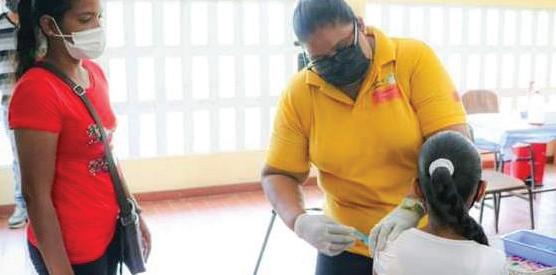
Adams, who received several ‘best nurse’ awards from various agencies, was interviewed in the context of Nurses Week, which begins each year on May 6 and ends on May 12.


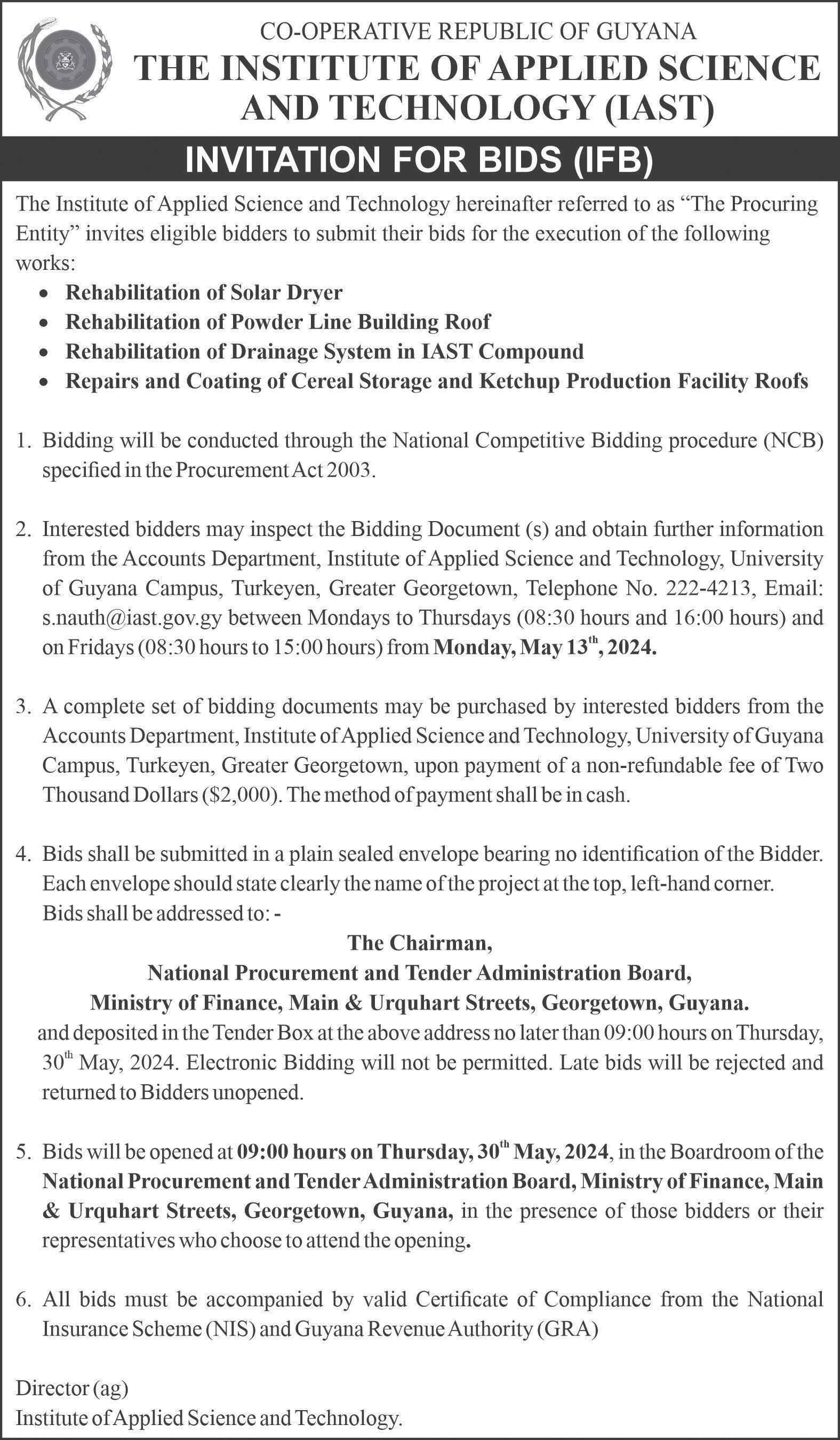


FROM PAGE XVIII
Safety and Health Department, and more inspectors have been appointed. The Minister of Labour has recently called for Occupational Safety and Health to be deemed a Profession, thus giving greater status and authority to the officers charged with enforcing the safety and health regulations.
Adequate training in ensuring safety and health in the various industries would be intensified, resulting in employers having proper equipment and properly maintaining them. For example, in the construction industry, proper scaffolding should provide areas for resting without the threat of falling, and in the mining industry, measures must be taken to prevent the “cave-ins” that could bury miners. Other personal safety equipment would include safety boots, safety helmets, appropriate gloves, cell phone safety vests for appropriate industries, masks and respirators for those working in chemical industries or with cement and luminous vests for those involved in the aeronautics industry. With such training of inspectors and workers being trained appropriately and the acquisition of appropriate equipment by companies, death and injury rates should almost disappear.
Finally, workplaces, as some actually do at present, should institute regular medical check-ups of their workers, especially those engaged in dangerous activities such as dealing with chemicals or cement packing.
Homeowners tend to develop their own menus of safety precautions, but these should include having a medicine kit, a list of important telephone numbers, including those of the police and doctor and nearest neighbour, ensuring that one telephone in the home is always functional and that burglar alarm and security cameras are in working order if the homeowner has such. Keep dogs penned so that would-be criminals may not feed them any poisonous food.


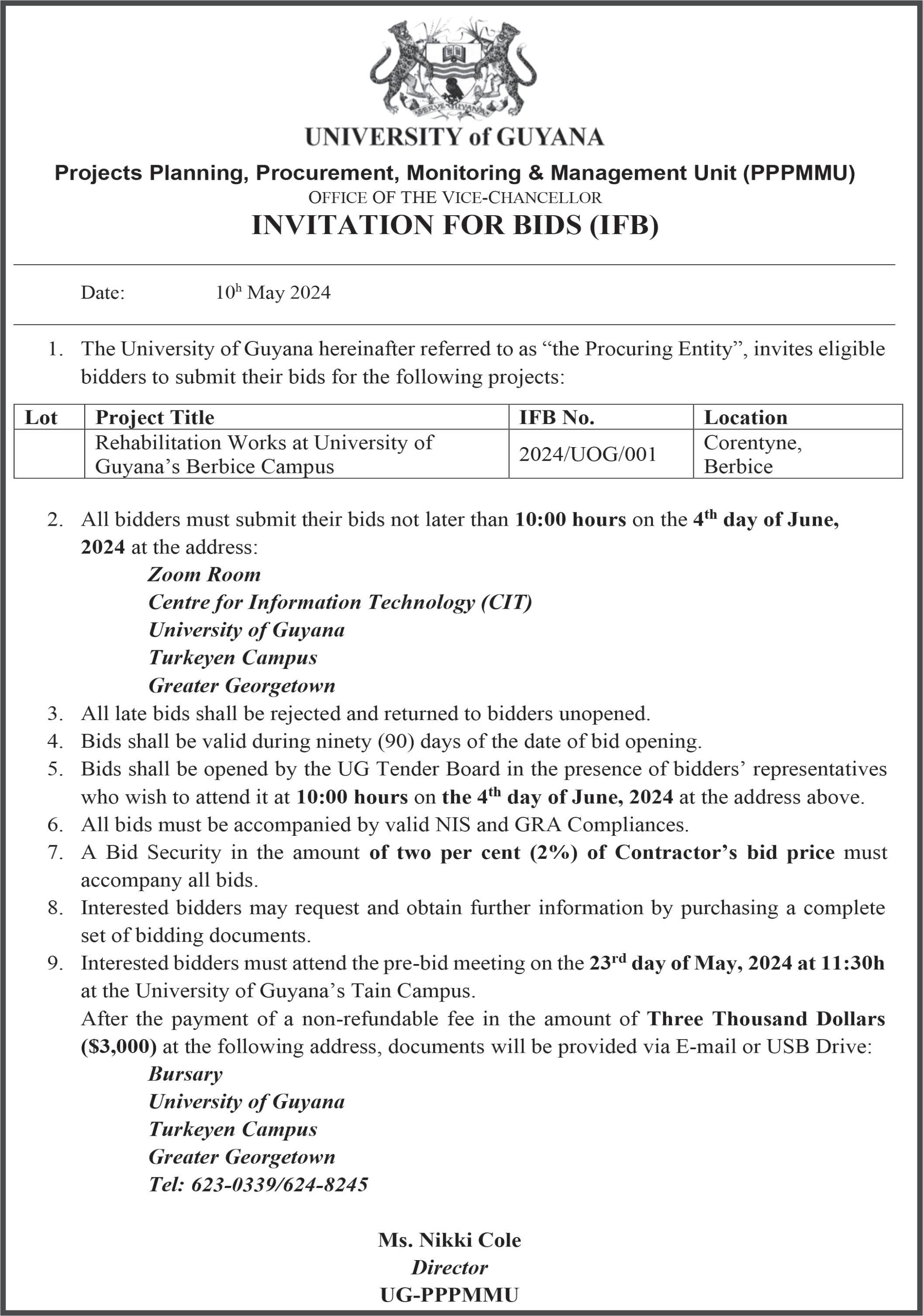
Puran Brothers has successfully completed numerous construction projects
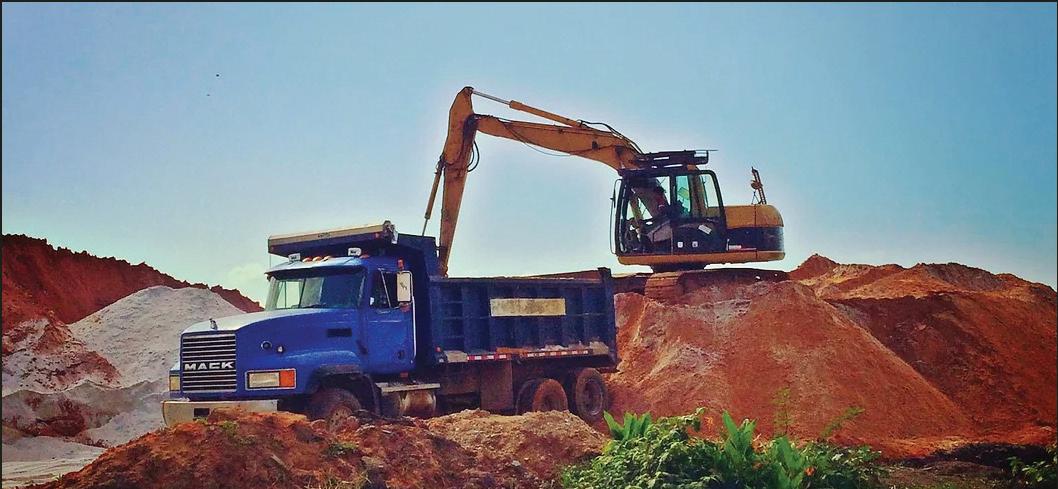
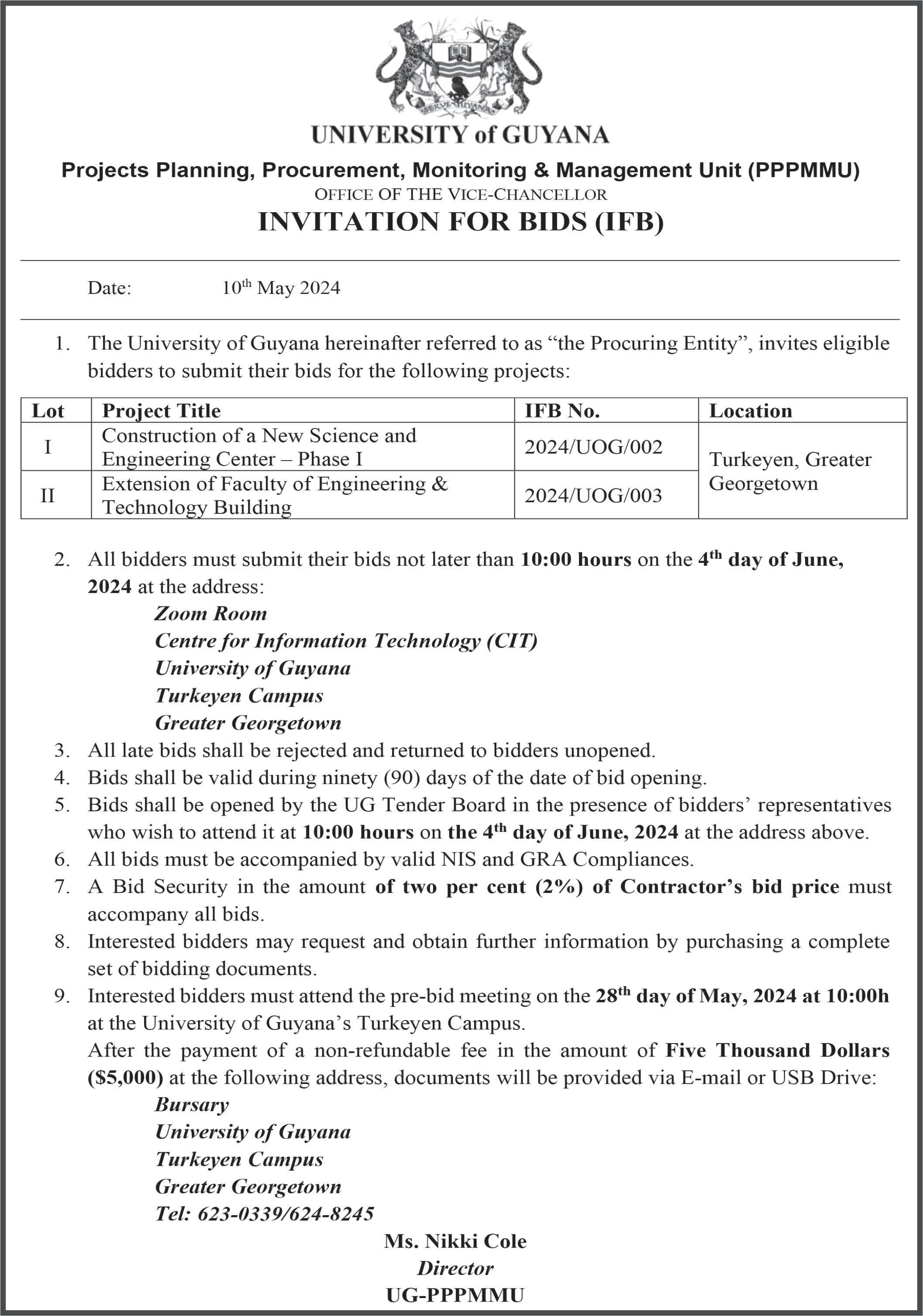
FROM PAGE IV
Council for 35 years posed its own challenges. “We realised we couldn’t depend on them because they weren’t paying us on time, so we had to divert and do other businesses.” Even though still doing some work for the Council now, the company went into construction, party rentals, toilet rentals, document shredding, and a host of other business ventures.
His son, Assistant General Manager Kishan Puran, says they are always looking to see what new ventures the company can undertake. He recalled how his dad and cousin, Kalesh (General Manager of Puran Brothers), brainstormed and came up with the business idea to empty septic tanks. Therefore, from solid waste, they went into liquid waste management, of course, with the Government of Guyana’s assistance to create a facility to aid them in doing so.
“This is something which we are trying to bring to Essequibo right now. We are like 75 percent there to get the facility created so we can start that operation here in Essequibo,” Kishan shared with this publication on the sidelines of a ribbon-cutting ceremony to open his brother Chetandra’s newest Chicken ‘n’ Burger Delight location. (Chetandra is also in charge of the IT Department and Sand Pit and Quarry Operations at Puran Brothers)
The way a small business can start up and bloom quickly today is nothing compared to what obtained back in the days, Kishan observed, so things were very slow in the beginning until more family members decided to join and help to grow the business to the point it now has some 500 employees with 200 trucks and equipment.
“Puran Brothers is a family business; it’s not a oneman show. This entire family came together and tried to push it to where it is right now,” he shared.
His brother Chetandra and cousins Satesh, Rakesh, Navin, Vikash, and Vishal are among those who also work in strategic positions, along with senior and reliable staff members who have been with the company since its inception.
Kishan has been exploring different business ideas to see where the company can make more investments. “I see Guyana as a place with a lot of opportunities right now. With oil and gas and worldwide recognition, you can invest in any region of the country today.”
Puran Brothers hopes to start operations soon to manage waste oil, medical waste, and any other hazardous waste. The company has pioneered private garbage collection in rural areas, and today, thousands of households and businesses, such as fast food restaurants, hotels, stores and other commercial entities, benefit from its services. It is the only waste management company in Guyana that holds an Operations Permit from the Environmental Protection Agency.






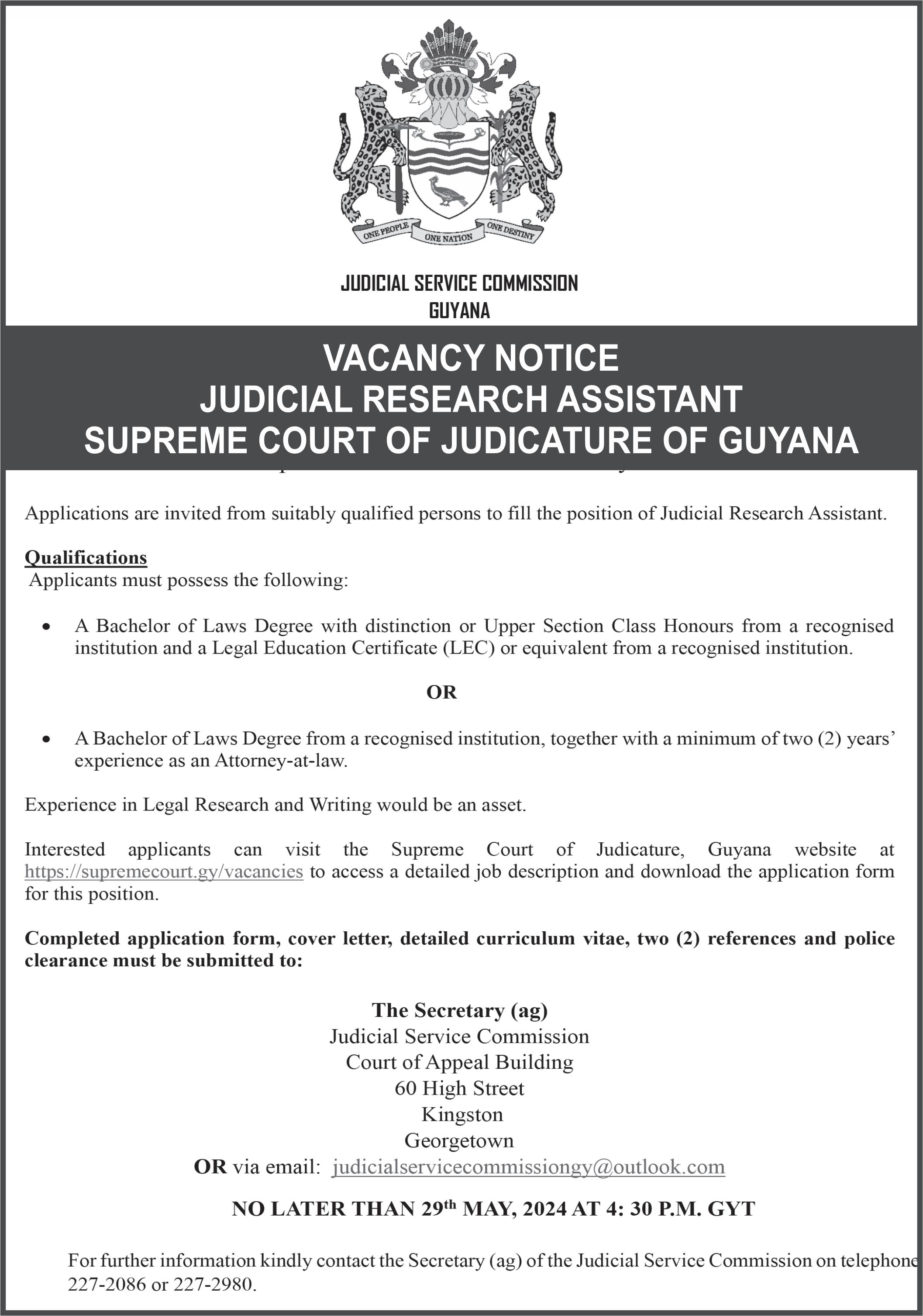



FROM PAGE VIII
and when two vehicles have to pass, pedestrians have to step off.”
Although it lies in the centre of industrial development, Independence Street has always been an agricultural community. Currently, the village is still home to a large number of farmers. Issaac says this is nothing new. Independence street has always been a farming area, a community where almost everything was homegrown, and people survived on their own produce. As Issaac shared, “ It’s a highly agricultural area. Years ago it was rice, then we changed to sugarcane. Farmers do not really do rice anymore. Many do the cash crops, cattle rearing, poultry rearing and these sorts of things. The farmers would have to depend heavily on blackwater for many years, but because of the development of the housing scheme, I think they are now working to bring back irrigation water for the farmers.”
Drainage is something else the community is working on. Independence Street is unique in the way of community leadership. Although small in comparison to some of the larger communities in Guyana, Independence Street seems to have the most dedicated people as villagers. Issaac is just one of the many community leaders the village has. The council’s most recent endeavour is drainage and irrigation. As he stated, “Our drainage system is, I would say, 80% up. We are having regular maintenance done. Every month the government is throwing in its lot to help the NDC and the community.”
Issaac and many of his fellow villagers consider Independence Street a haven. As Issaac shared, “I love La Grange. I grew up here. I was thinking years ago of migrating, but I love my country Guyana. Thanks to, when I was young, I got free education. I am presently serving as a divisional chairman in the security sector.” As chairman of the community, Issaac has always strived to help develop his community in any way possible. As he shared, “ I always say one thing. Guyana has offered me a lot and I have never regretted giving up these voluntary services. In this life, sometimes we have to show respect for what we receive and what we should give back. And so I want to encourage not only the people in La Grange, but the country is moving at a pace.”
His message to the rest of Guyana is simple. For many years, Independence Street faced many issues with infrastructure, employment, and overall quality of life. But change comes in small steps, says Issaac. And all we, as Guyanese, can do is be patient and continue to champion for our country and communities. “We must be patient, and things are going to happen. We are one people, one nation with one destiny. God bless Guyana.”

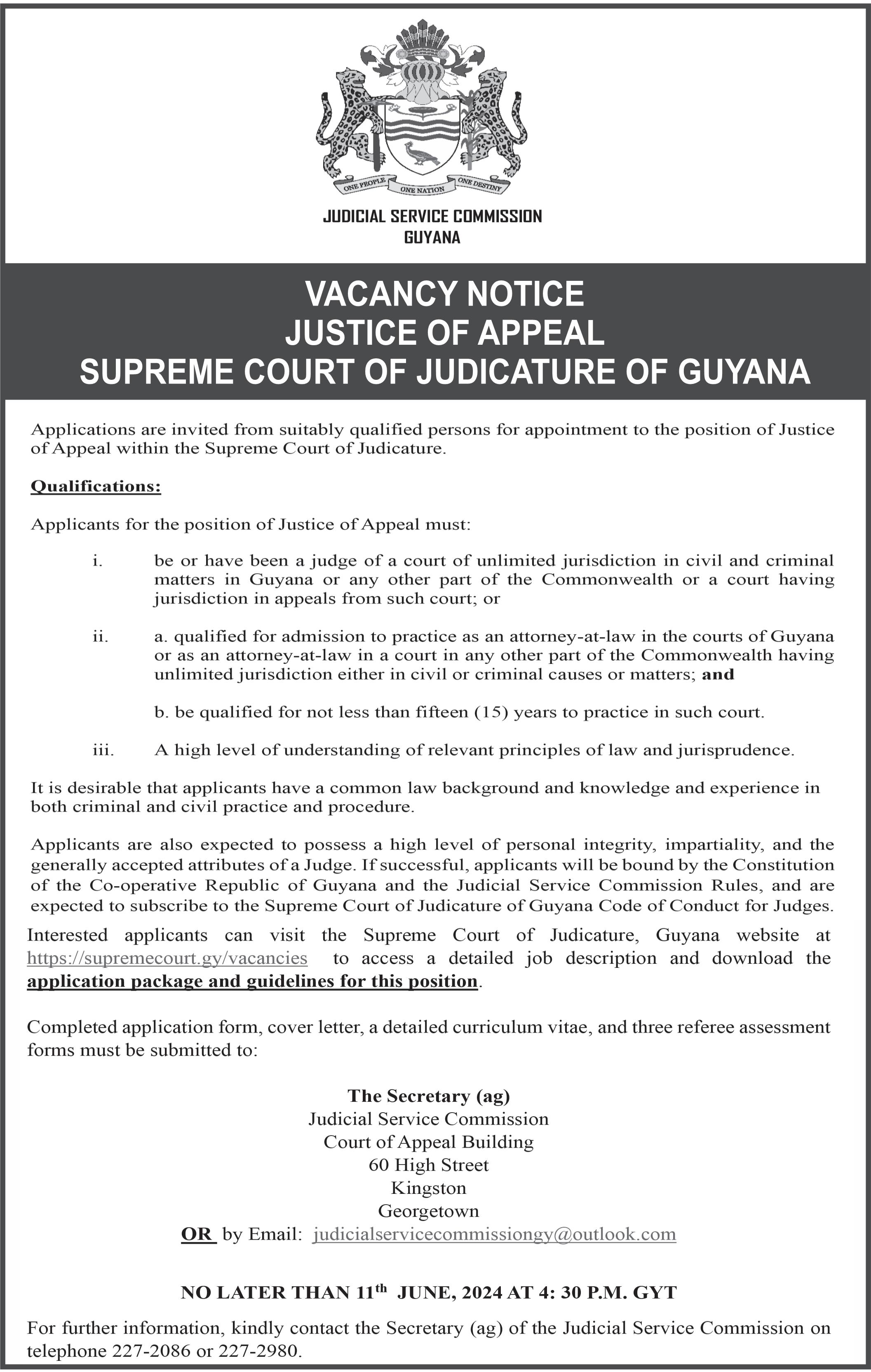







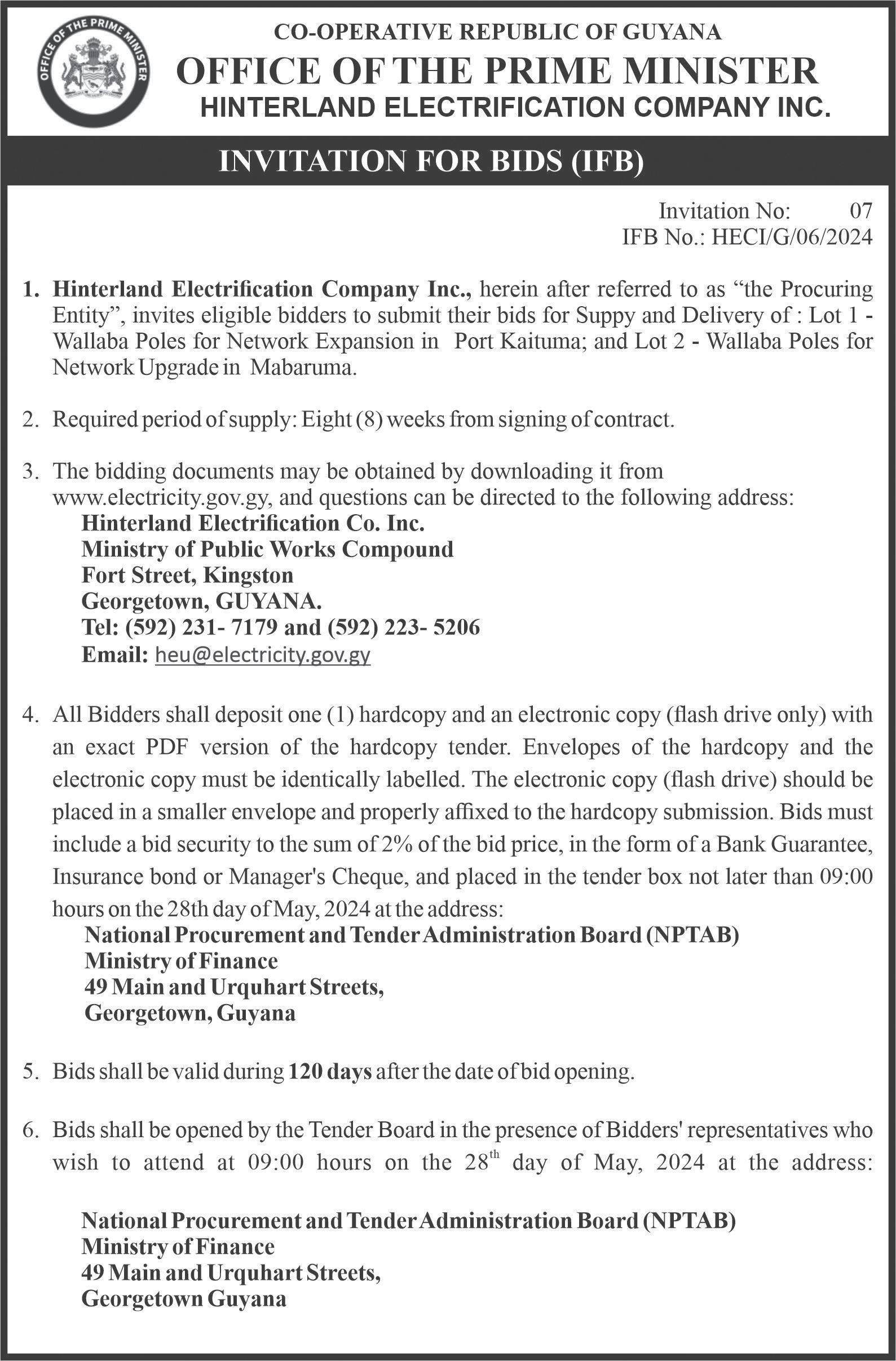


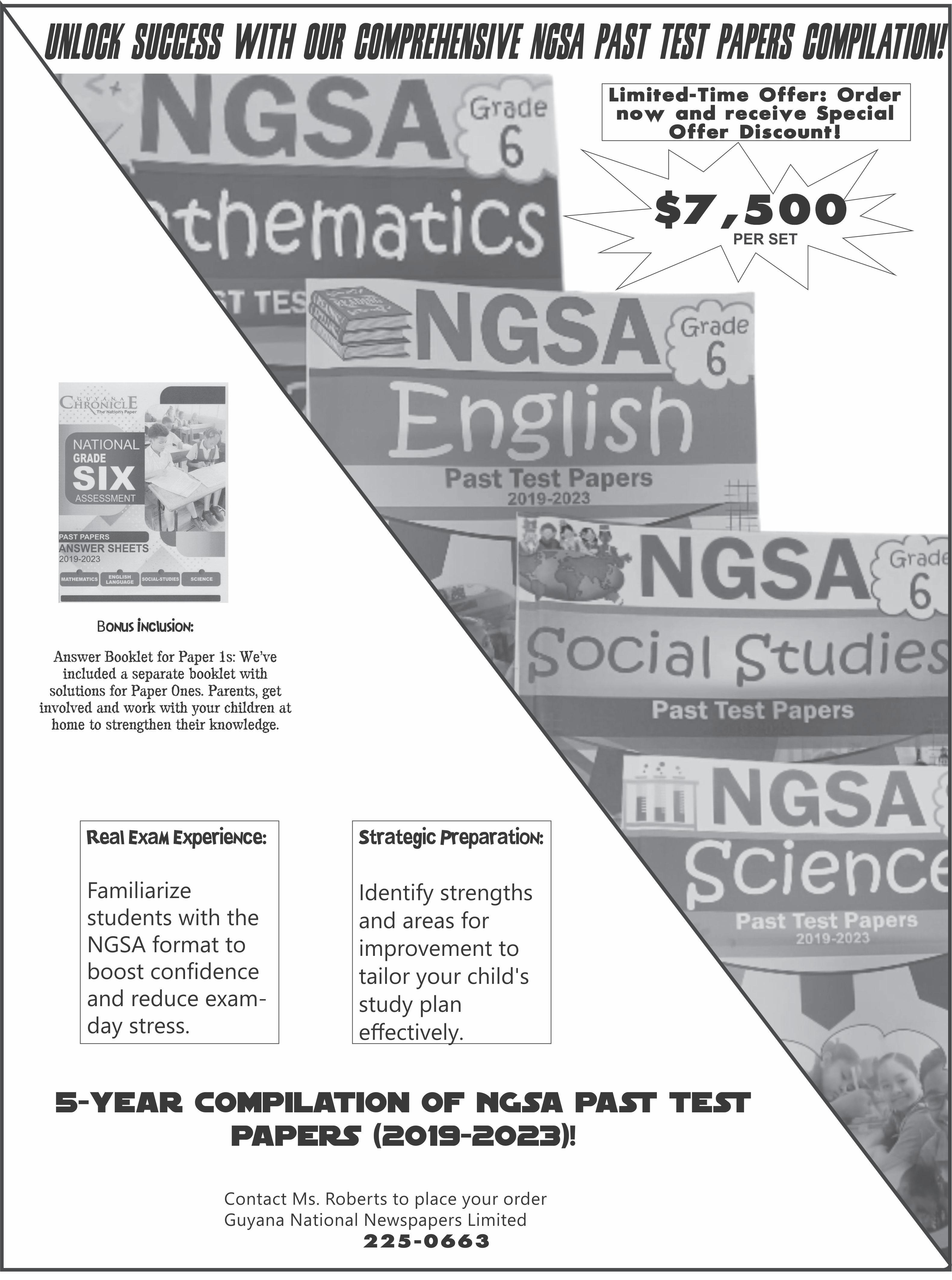




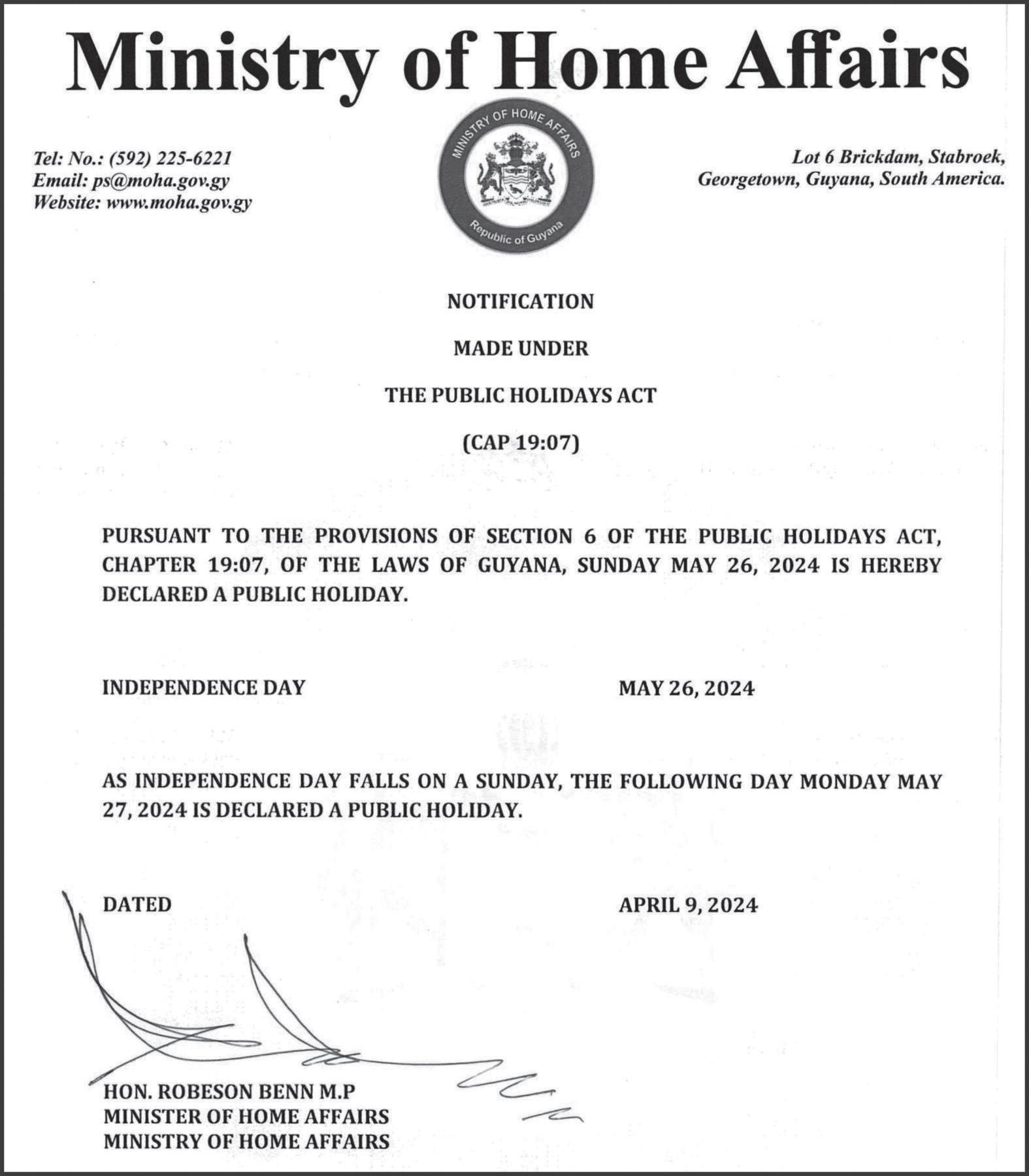






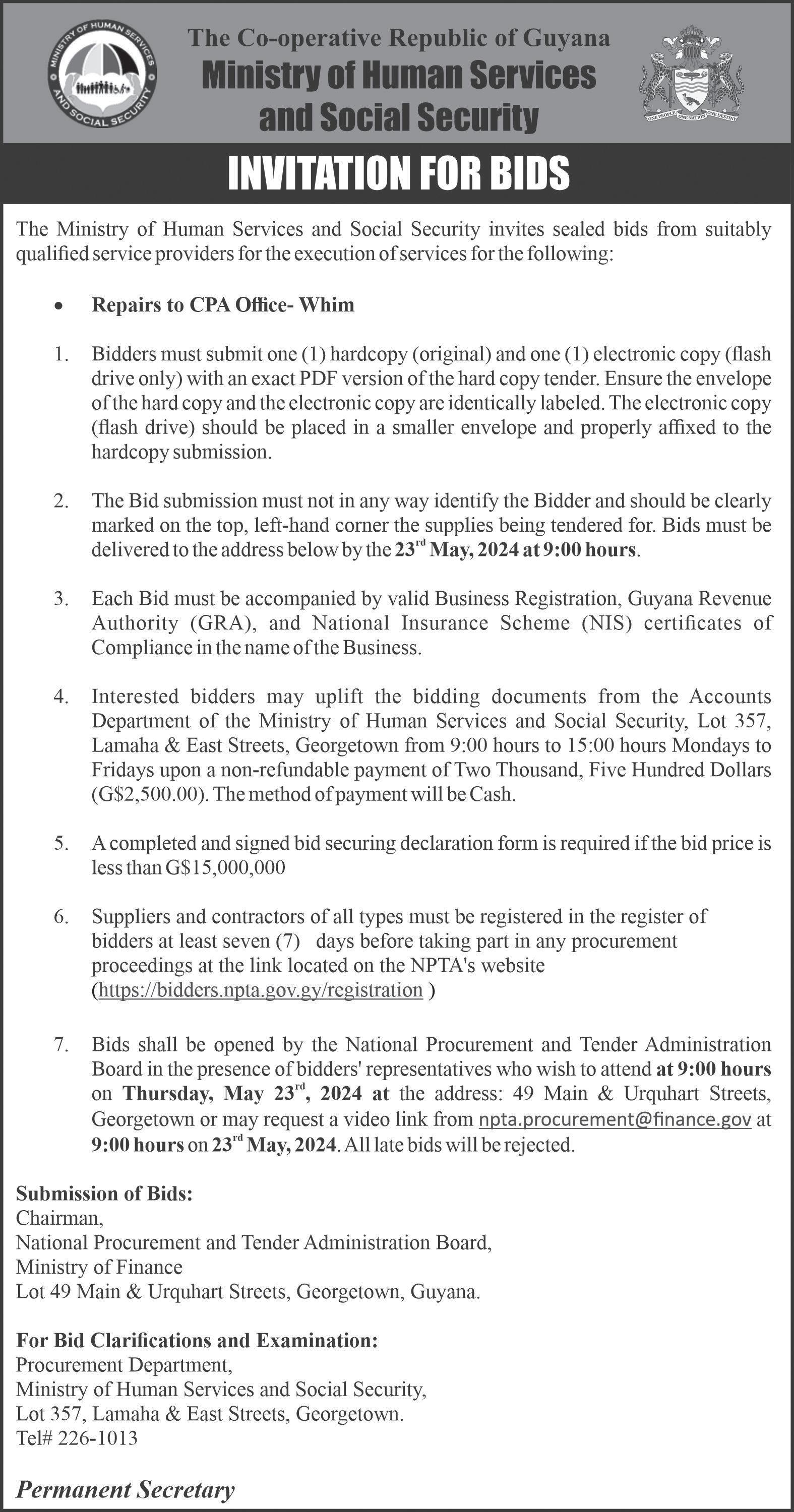


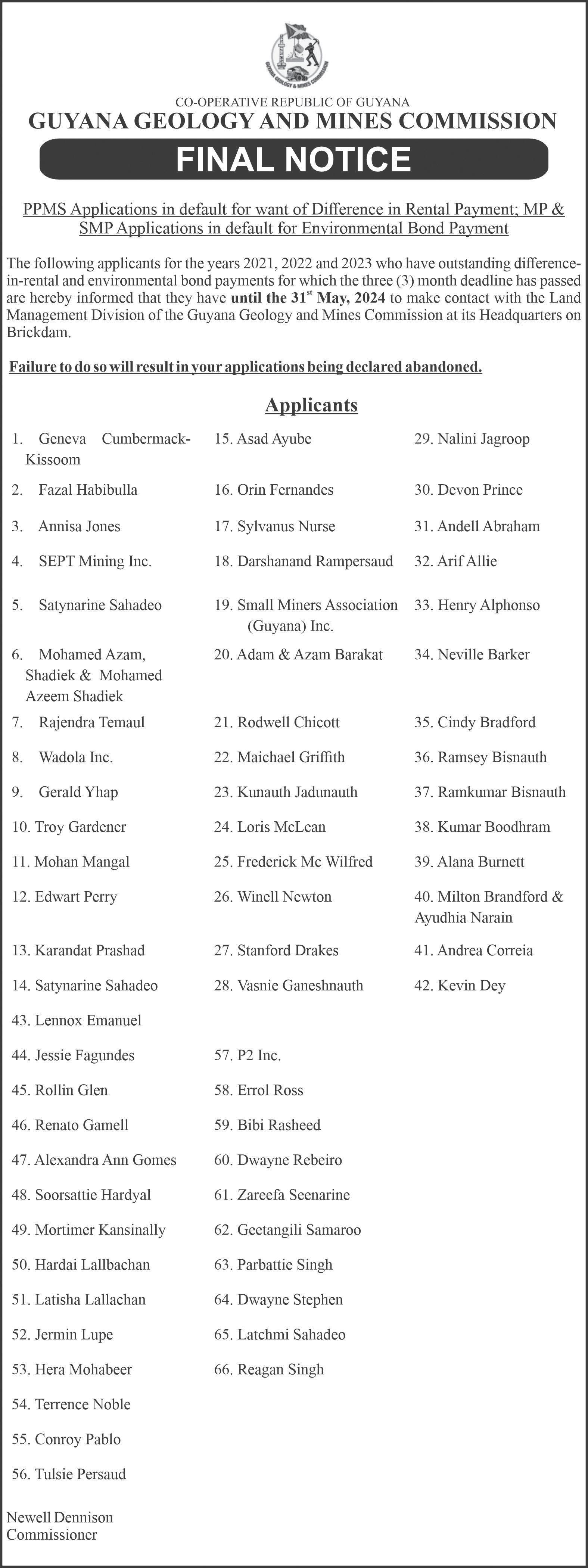


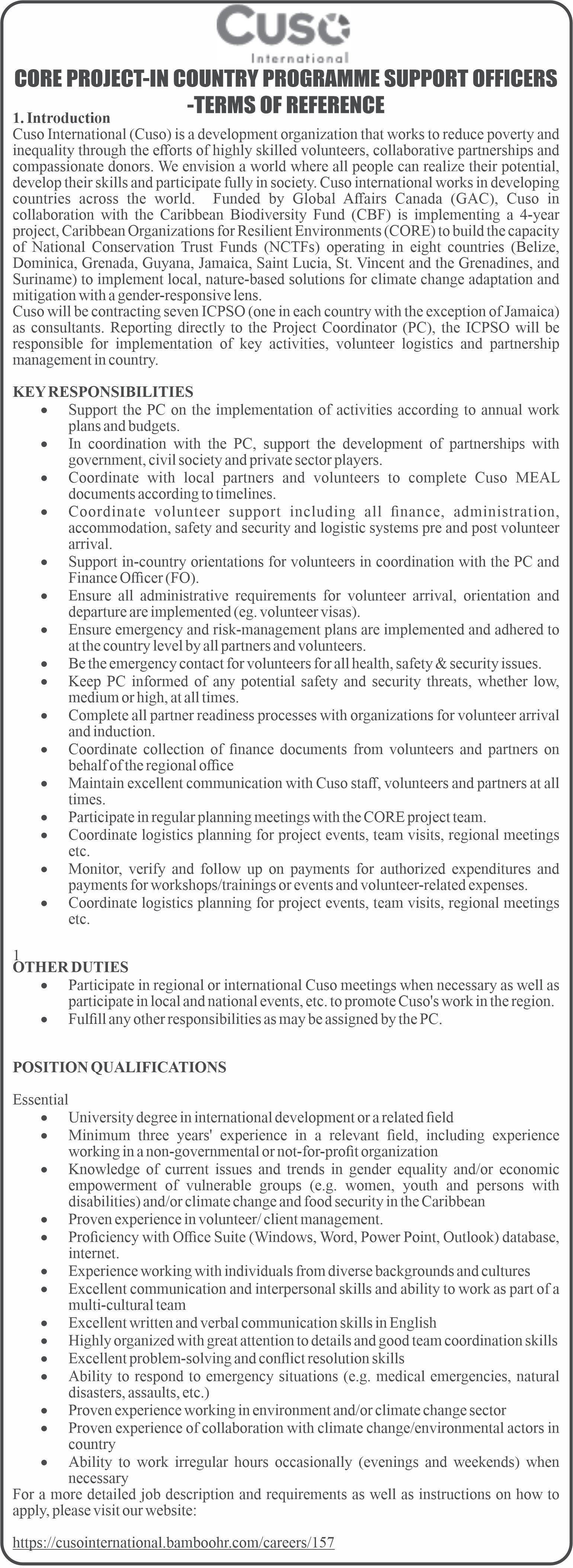
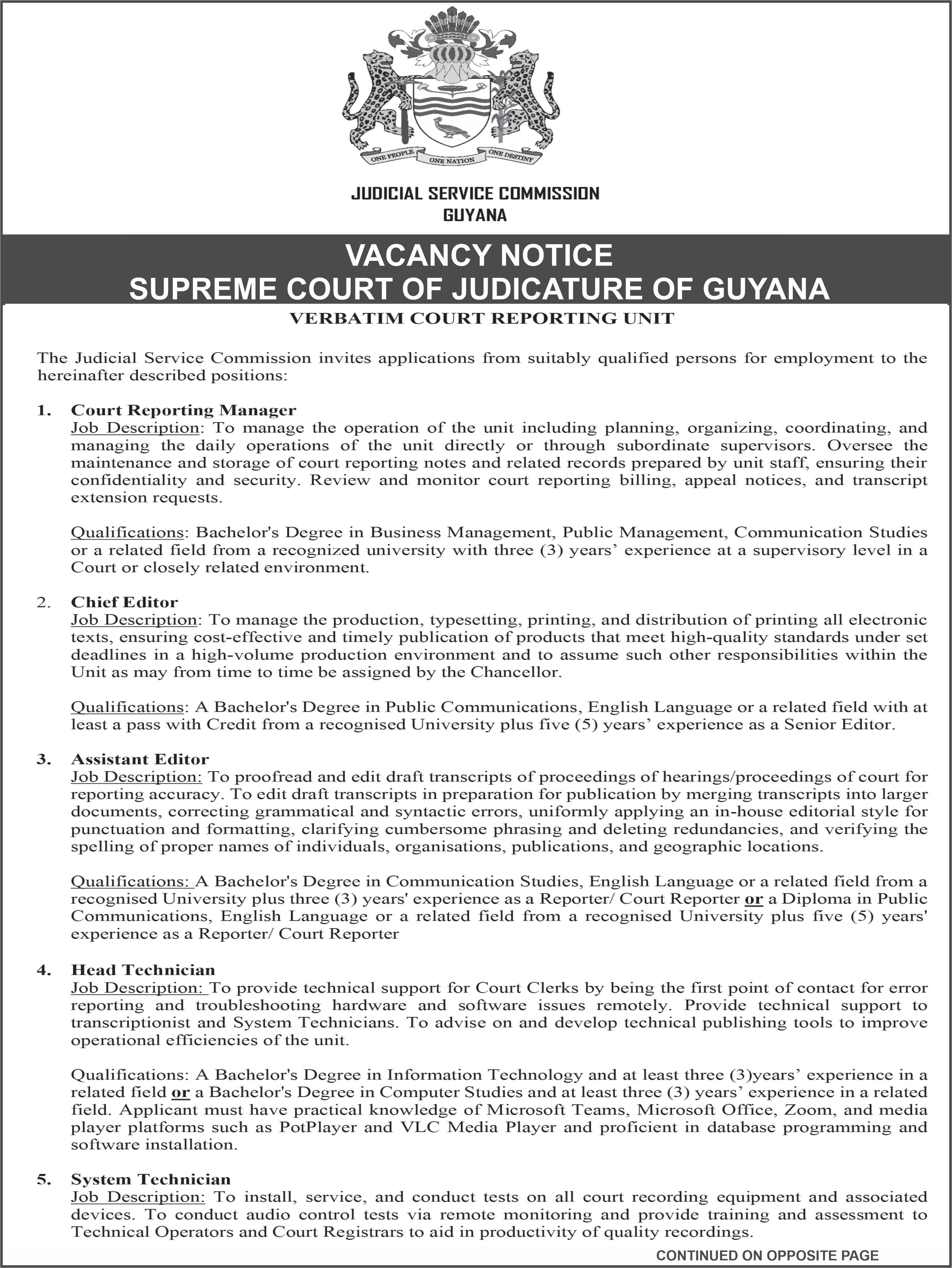
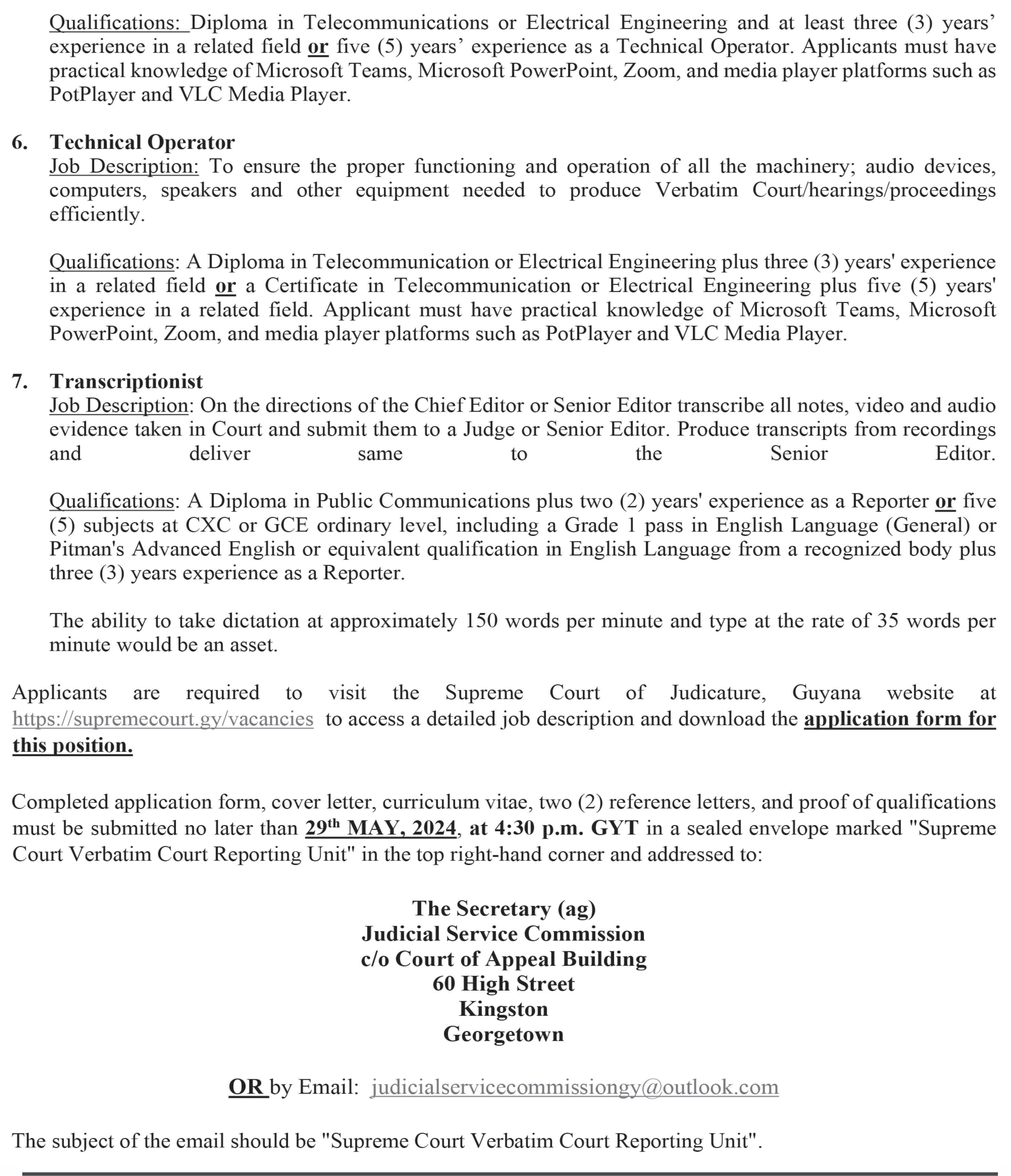


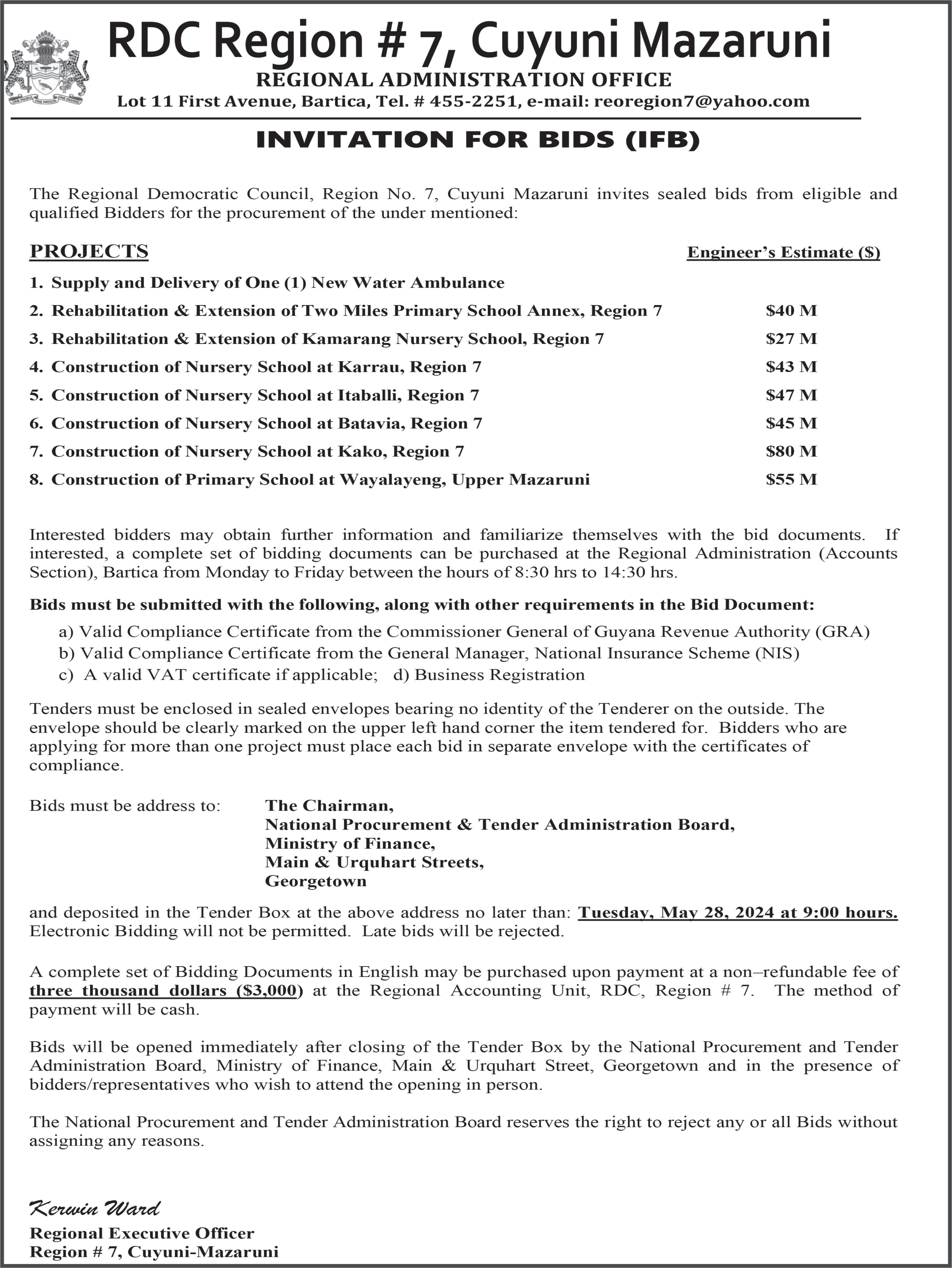
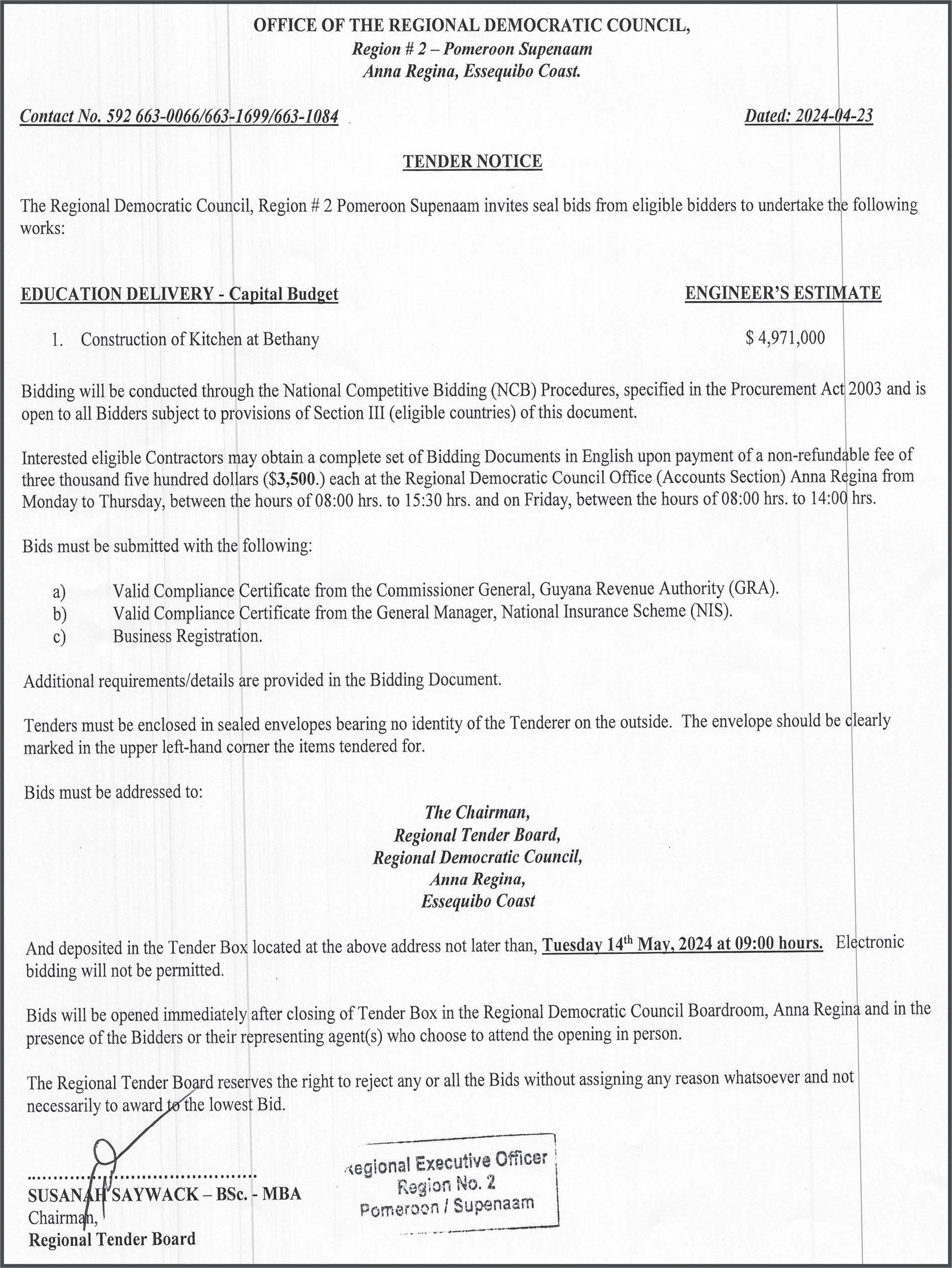

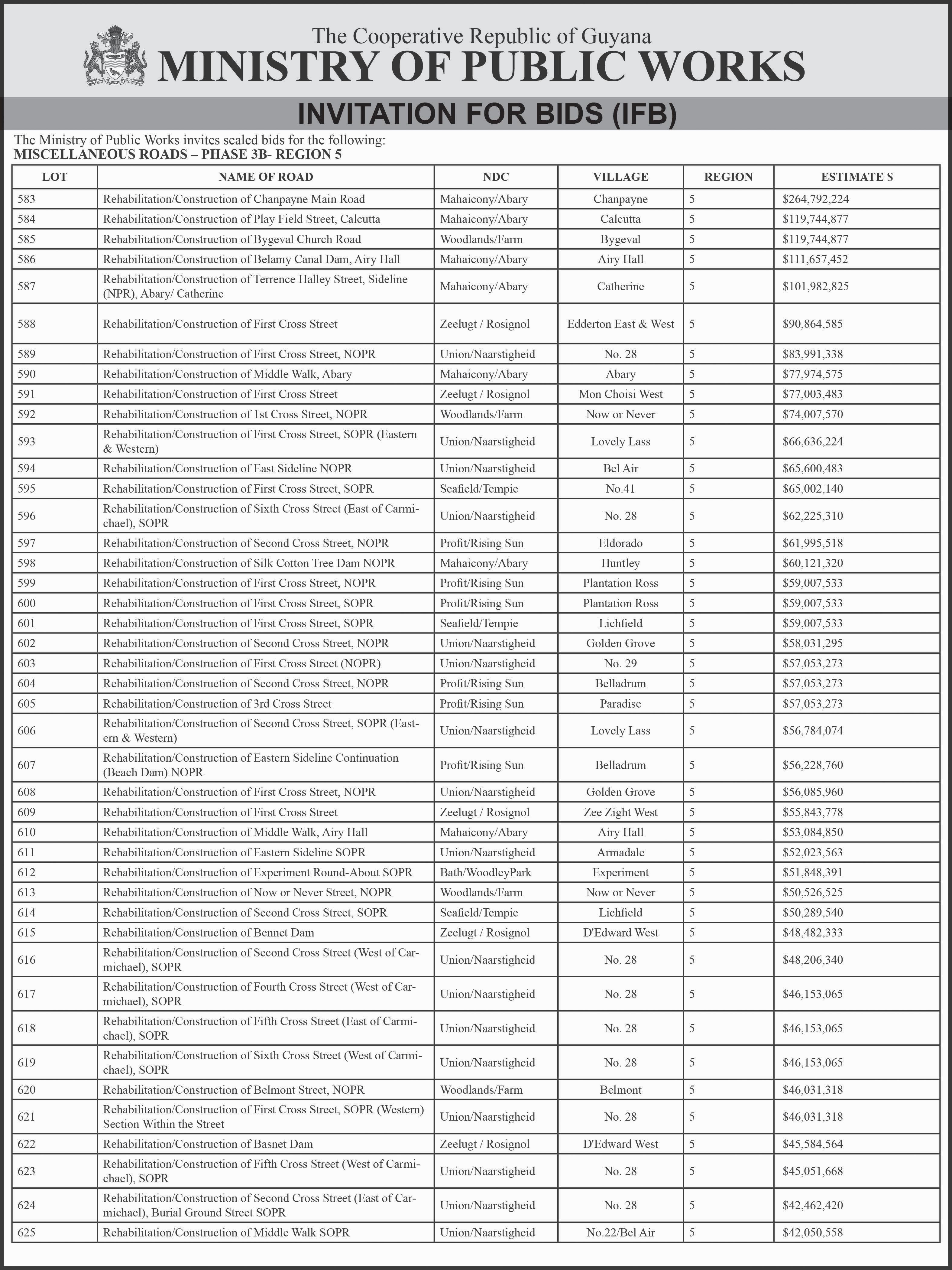


The liberty of the individual must be thus far limited; he must not make himself a nuisance to other people.
STUART
(1806- 1873) On Liberty (1859), ch. 3
Dear Student,
Welcome dear friend.
If you must discriminate between various ‘for’ and ‘against’ arguments in a text, you need enabling

reading abilities to: (i) decipher the communicative value of sentences and (ii) recognise more or less explicitly stated information. The idea is that various reasons given in favour of the point being discussed as well as those against can be scattered throughout the text, thus challenging readers to think about the meaning and value of the ideas expressed in the text. Be wise.
Love you.
Format of letter of opinion
Note: A letter of opinion requires data, facts, and logical rationale to support its writer’s arguments/ reasons/ viewpoints on an issue or situation. It is organised into clearly defined paragraphs supported by evidence and/or examples. An opposing viewpoint can be included in a paragraph.
When writing an opinion letter, do the following:
1. Create a persuasive and appealing introduction. Say what the issue is, and why you think it requires the reader’s attention.
2. Give your opinion clearly and the evidence to support it. A good way to order details is by the importance of each.
3. Organise a paragraph for each new idea.
4. Conclude by summarising your ideas and repeating your opinion using different words.
5. Express the hope that the reader will look further into the situation and thank him for his attention. 6. Proofread your letter.
Here is an example: Samuel puts forward, to the Students’ Council, how the group feel about a School Board announcement that plans were being made to cancel all inter-school competitions.
Address
Date
Dear John,
This letter from the students at Sunnyside Secondary School airs their concern to you about the proposed cancelling of the longstanding inter-school competition by the School Board. We hope the Board will not do this, and we hope that the Council will fight their decision.
Our school should continue this kind of competition. It has several favourable aspects. It keeps the body in good physical condition and the mind alert and active. These are important for everyone, but especially for students our age.
Competition between schools helps students get to know people their own age who are in schools
other than their own. Inter-school competition also encourages good sportsmanship because the students can see such sportsmanship in action. It also gives the students a feeling of pride in their team and their school. Such competition also helps the students learn to lose gracefully.
Some students are really good athletes and want to make sports their career. These students should have a chance to learn about different sports and to compete against other students who are good at these. In this way, talented athletes can prove their skills. After all, some of our students might grow up to be the great athletes of our time.
Please let the School Board know our feelings on this issue, and do fight for our point of view.
Thank you for taking the time to listen.
Yours sincerely,
Samuel Holder
Jennifer Johnson
Jacques Collishaw
Points to notice: The first paragraph in this simply written letter of opinion are these:
i) The first paragraph states what the issue is.
ii) The second, third, and fourth paragraphs give opinion and supporting details.
iii) The last paragraph expresses hope that the reader will look further into the contents of the letter.
iv) All that is said is followed by thanks for the reader’s attention.
What to Do: Reply to Samuel’s letter of opinion and either agree with him or take an opposite point of view. If you disagree with Samuel, be sure to give the evidence to support your opinion.
Nearest in meaning to the original sentence
Note: A sentence that is nearest in meaning to another is one that has the same or very close meaning to the original sentence and in our case, English sentence. Choose the sentence nearest in meaning to the original sentence.
1. It was impossible to rectify the error made by the computer since inaccurate information had been fed into it.
(A) alter (B) erase (C) correct (D) determine
2. The bank teller indicated that our account was dormant.
(A) inactive (B) inadequate (C) transferred (D) overdrawn
3. The news story revealed the squalor of the old prison cells.
(A) security (B) strength (C) ambiance (D) filthiness
4. A citizen is expected to show complete allegiance to his native land.
(A) loyalty (B) respect (C) homage (D) obedience
5. For the first time in a decade the coconut biscuit company disclosed a deficit in its accounts.
(A) error (B) defect (C) balance (D) shortfall
6. Water pollution is a common problem because people thoughtlessly dump their garbage in water courses.
(A) People throw their garbage in water courses, making this an unusual problem.
(B) If people did not dump their garbage in water, we would not have a pollution problem.
(C) Water pollution takes place because people negligently dump their garbage in water courses.
(D) Even though water pollution is a problem, people still dump their garbage in water courses.

EVERY year, tens of thousands of Guyanese needlessly suffer from a broad range of preventable illnesses. Less serious conditions such as excessive fatigue and headaches may go unnoticed or will be incorrectly attributed to ageing or stress. Hundreds of individuals develop more serious symptoms such as arthritis, colitis, heart disease, infections, hypertension, thyroid imbalances, migraines, kidney damage and other diseases. These people will become ill for no apparent reason.
But often, there is a reason for these diseases: their mouths. The renowned German physician, Dr Reinhard Voll, based on more than 40 years of research and observation, estimated that 80 percent of all illnesses are related entirely or partially to problems in the mouth. This important statistic would surprise all healthcare practitioners. Most physicians and dentists, despite knowing better, soon overlook entirely the fact that attached to every tooth is a person.
Traditional dental practices can often cause physical illness and trauma and can do more harm than good. The truth is that every dental procedure is an invasion of the human system, and many generate an adverse response somewhere in the body. The milder symptoms are often confused with what we have been led to believe are the normal side effects of stress-filled lives or the natural ageing process.
By now, you are wondering why you go to the dentist if there is the distinct possibility of acquiring something negative. That may explain why a new breed of dental practitioners is emerging. These dentists are offering important alternative solutions to traditional dental practices. While the profession’s name cannot be officially changed for obvious reasons, many refer to the new concept as Whole-Body Dentistry.
Consider for a moment that the human body comprises entirely of billions of tiny energy particles. Within this energetic system, there are pathways called meridians. Every organ and every part of your body is linked to a specific tooth or area of the mouth via these meridians or energy highways.
This connection is so strong that any dentist embracing the concept of Whole-Body Dentistry can often accurately “guess” your dental history simply by reviewing your physical symptoms.
For example, a patient came to me with chronic sinus problems which have no cause or cure. Without even examining him, I immediately asked if he had any root canal work done on his upper molar, which relates to the maxillary sinuses. He was amazed that I “guessed” correctly, and further conversation revealed that the sinus problem started after the root canal therapy. The offending tooth was removed, and within a week, the sinusitis disappeared. Needless to say, this is by no means a common occurrence.
It can often be that simple. The new concept makes the dentist look like a detective, sorting through clues and signals and putting the information together uniquely, to discover the real source of problems. Extracting a misaligned or offending tooth will alleviate a whole host of unrelated physical symptoms in days. Some problems will correct in the chair. You cannot underestimate the impact of your teeth on your entire body’s health.
Patients must appreciate the relationship between their mouth and the rest of their bodies, so they can participate in their own treatment decisions.


